WELCOME TO THIS WEBSITE ON MIGRATION RESEARCH
Galeria de Recerca sobre Migracions
GRM
INFORMING YOU SINCE 2002
NEWS & AGENDA
During the last week of January 2026 the on-site activities in Great Britain of the research project titled The lived experiences of different migrants residing in the Northeast of England (LEMINEE) continued within the framework of a collaboration of Newcastle University and UAB. In this sense, two more research meetings were held in Newcastle-upon-Tyne (including the participation, among others, of Ruth McAreavey and Ricard Morén-Alegret) and a second stage of fieldwork and photographic-documental work was carried out mainly in Northumberland by Ricard Morén-Alegret . Among other activities, this fieldwork included five additional semi-structured interviews with key informants that belong to an immigrant workers’ recruitment agency, local community organisations and cultural businesses (in total, 28 semi-structured interviews have been conducted so far; for more information about the LEMINEE project, see the Research section of this GRM website). In addition, photographic and documental work took place in libraries, bookshops, newsagents, social venues, etc. of Berwick-upon-Tweed area.
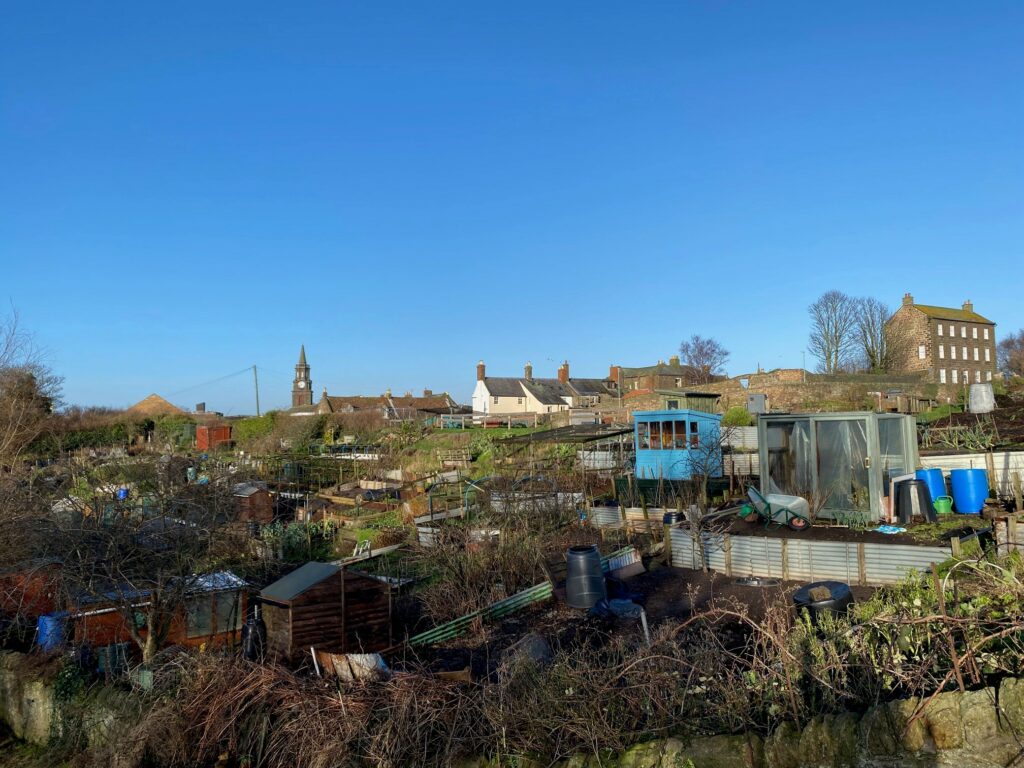
Photo: Berwick-upon-Tweed, Northumberland (England), January 2026 (@RicardMoren)
In mid-January 2026 a new monographic issue devoted to rural immigration in various regions of Spain has been published in the Spanish Journal of Sociology / Revista Española de Sociología, RES. This issue includes the following articles:
- ¿Solo una estación de paso?: arraigo y trayectorias de progreso de la población inmigrante en el medio rural by Rosario Sampedro & Luis Alfonso Camarero (a283) PDF & Podcast.
- ¿Es la inmovilización al campo lo que la movilización a la ciudad? Análisis de la participación política de la población migrante en los entornos rurales y urbanos europeos y españoles by Mónica Ferrín Pereira & Carlos Diz (a284) PDF & Podcast.
- ¿Ser municipio acogedor (de inmigrantes) o no ser(lo)? Actitudes ante la inmigración rural en gobiernos de micropueblos catalanes by Ricard Morén-Alegret, Laura Oso & Laia Mojica Gasol (a285) PDF & Podcast.
- Análisis multinivel de las agendas territoriales sobre migraciones y desarrollo en regiones periferizadas de España: ¿qué sucede ante un rural más diverso? by Keina Espiñeira & Belén Fernández-Suárez (a286) PDF & Podcast.
- Los pinares de Babel: sociología política de la incorporación de trabajadores migrantes a la bioeconomía resinera by Paula Tejada-Guzmán & Alberto Alonso-Fradejas (a287) PDF & Podcast.
- Familias migrantes en la escuela despoblada: función social con rostro ambivalente by Paula Alonso-Pardo (a288) PDF & Podcast.
- Revisitando el nexo migración, género y desarrollo: corredores translocales y cadenas de cuidados entre Cabo Verde y Galicia by Laura Oso & Antía Pérez-Caramés (a289) PDF…

In October 2025, Dr Josepha Milazzo has been awarded a 2026 Residency at La Maison Forte, in Monbalen, Lot-et-Garonne, France. During the summer of 2026, she will conduct a research project titled Monbalen, village of possibilities: inhabiting transitions in dispersed rural areas. See: https://la-maison-forte.com/. Dr Josepha Milazzo obtained a PhD in Geography at UAB and Aix-Marseille University (2018), and she is currently based at Université d’Angers ESTHUA-INNTO-ICUNA Ningbo and the ESO laboratory (UMR CNRS 6590). This 2025 she has also been interviewed by the French press in relation to a previous research project on immigration and lay/religious movements in Lagrasse, a village of Aude, e.g. see: https://www.lindependant.fr/2025/06/28/ils-ne-vivent-pas-en-mode-clos-font-du-proselytisme-participent-a-des-evenements-leur-presence-attire-des-familles-comment-la-docteure-en-geographie-12663137.php
From 22 to 25 September 2025 the on-site kick-off meetings of the project titled European Union (EU) Migrants Promoting Openness with Equal Rights, EUM POWER, took place in The Netherlands and in Belgium. In these meetings, a variety of policymakers, entrepreneurs, academics as well as employees of companies and NGOs participated, coming from Belgium, Finland, Greece, Hungary, North Macedonia, Romania, Spain and The Netherlands. From 2025 to 2029, the EUM POWER project seeks to enhance the rights and opportunities of Intra-EU labour migrant workers, fostering economic, social, and territorial cohesion within the EU, but taking into account non-EU countries like North Macedonia. This project is co-funded by the European Union and is coordinated from The Hague University of Applied Sciences by Dr Rosa Groen, Remmelt de Weerd and Gijs Giesen; see: https://www.interregeurope.eu/eum-power. Within that framework, on September 24 and 25, A Prof Ricard Morén-Alegret (UAB-GEO-GRM) participated in several meetings held in Brussels and Ninove (Belgium), where he commented some introductory issues related to the situation in Guissona municipality within the context of Segarra County, Lleida province, Catalonia and Spain as a whole.
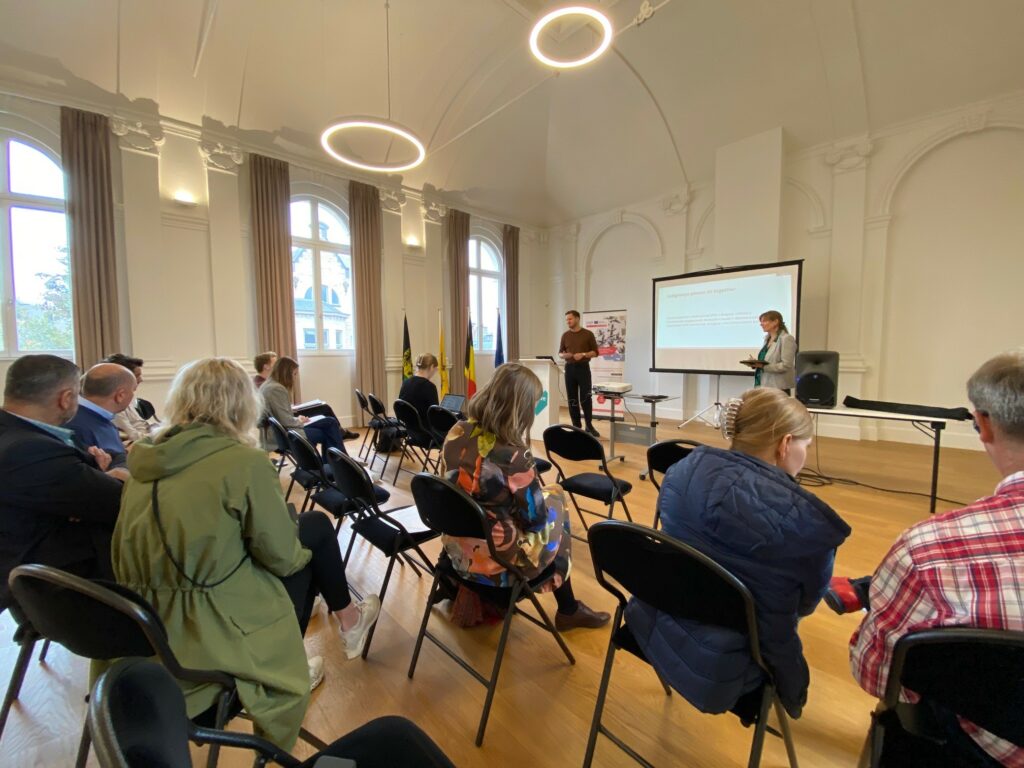
Photo: meeting in Ninove Liberale Kring, 25 September 2025
In July 2025 the international cooperation project titled Workshop of cinema and migration: Exploring the re-territorialisation of Venezuelan immigration in Iquique and Alto Hospicio (Tarapacá, Chile) through participatory audio-visual stories has been awarded to Consuelo González-Pavicich. This project is funded by the UAB Fundació Autònoma Solidària (FAS-UAB) and will be mainly carried out from December 2025 to early February 2026. See: https://www.uab.cat/doc/ResolucioE20242025

From 24 June to 27 June 2025 the MARE 2025 People & The Sea Conference took place at Amsterdam University (The Netherlands). MARE is an international and interdisciplinary social science organisation interested in the use and management of marine resources. Its objective is to provide a stimulating intellectual climate for academics and policymakers working on topics related to coasts and seas. Although MARE limits its action radius to the social sciences, it seeks active collaboration with other disciplines. It strives to maintain a balanced mix of academic and policy-oriented research. For instance, Session 1.21 on Labouring about labour in maritime space took place on June 24 linked to GRM, including the following oral presentations with PowerPoint support: *Desai Shan, Memorial University, Canada: New Amendments to the Maritime Labour Convention, 2006; *Ricard Moren-Alegret, Universitat Autònoma de Barcelona, UAB, Spain: International immigrant fishers in Catalonia, Spain: Exploring their generational renewal; *Andrea Márquez Escamilla et al., Universitat Politècnica de València, Spain: Europe and generational replacement in fishing… & *Shilpa Krishnan et al., Indian Institute of Technology Guwahati, India: Land within capitalist development: Subversion of small-scale fish workers… Source & more information: https://marecentre.nl/mare-conference-people-and-the-sea-xiii/
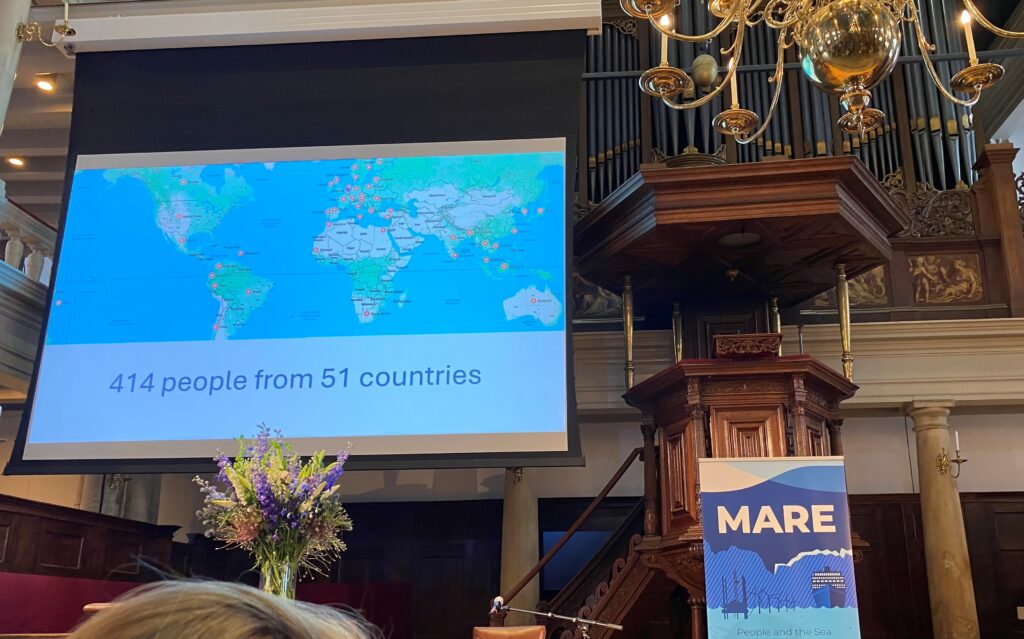
On 19 June and 20 June 2025 the Migration and Societal Change Conference 2025 took place at Utrecht University (The Netherlands). This was an interdisciplinary event that showcased some of the latest scientific research and policy innovations on human migration, contributing to public discourse and encouraging fresh perspectives. For instance, Panel 11 on Migration and Dynamics of Labour was linked to GRM and included the following presentations: *1. Karun K. Karki, University of British Columbia, Canada, & Festus Moasun, University of Windsor, Canada: Exclusion in the Face of Expertise: The Employment Disparities for Skilled Racialized Immigrants in the Canadian Labour market; * 2. Ioana Marin, University of Valencia, Spain: Exploring the Labour Trajectories of Romanian Women in Barcelona, Valencia, and Castellón; *3. T. Ooft; R. Sobhie & Y. Grift, Anton de Kom University, Suriname: The role of migrants in the transition of the Surinamese Labor market composition; *4. Ricard Morén-Alegret, Autonomous University of Barcelona / Universitat Autònoma de Barcelona (UAB): International immigrant fishers in Catalonia, Spain: Exploring their generational renewal.; *5. Talitha Dubow, Maastricht University: Im(mobility) aspirations in the context of ‘anywhere jobs’ nearshored to the EU’s borders. For more information, see: https://www.uu.nl/en/research/migration-and-societal-change/conference-2025

Photo: A coastal small town in Catalonia, 2025 (@RicardMoren)
On 22 May 2025 an article titled Impacts of International Immigrants’ Capitals on Neo-Endogenous Rural Development in the French and Spanish Pyrenees and co-authored by Cristóbal Mendoza, William Berthomière & Ricard Morén-Alegret has been published in the European Countryside journal, see: https://doi.org/10.2478/euco-2025-0012. This publication is an output of the SURDIM research project (2021-2023) funded by the European Commission and linked to GRM, see: https://cordis.europa.eu/project/id/101023968.

During the spring of 2025, Prof Ruth McAreavey and A Prof Ricard Morén-Alegret have started at Newcastle University, UK, a research collaboration mainly focused on rural immigration in Northumberland, a large county in the Northeast of England. This research project is titled The lived experiences of different migrants residing in the Northeast of England, LEMINEE, and is funded by the University of Newcastle (2024-2026). In 2024, Ricard Morén had been appointed Visiting Professor in the School of Geography, Politics and Sociology, GPS, of Newcastle University for a period running from March 2025 to March 2026 as well as he had already been awarded as GPS Global Visiting Fellow (GVFs) by that British university in a competitive call for research project proposals.
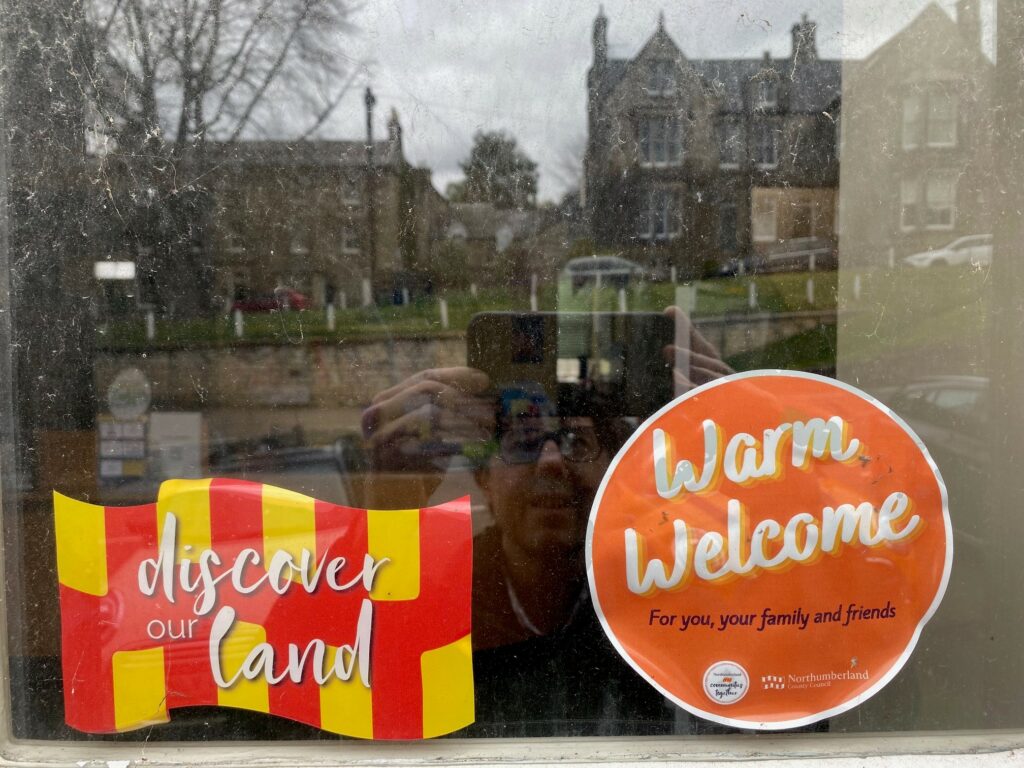
Among others, the initial research period of this international collaboration (up to mid-May 2025) has included the following activities in England:
1) From 22 April to 8 May 2025 intensive and extensive fieldwork was mainly carried out by Ricard Morén-Alegret with support from Ruth McAreavey in a variety of small towns, villages and hamlets of Northumberland, where rural immigration can be found (or not), as well as in the city of Newcastle-upon-Tyne, where some relevant regional organisations have their headquarters. This fieldwork has included documental and photographic work as well as audio-recorded semi-structured interviews with 23 key informants born in the Northeast of England, in other regions of the UK and abroad. During the next months, these interviews and the documents gathered will be analysed.
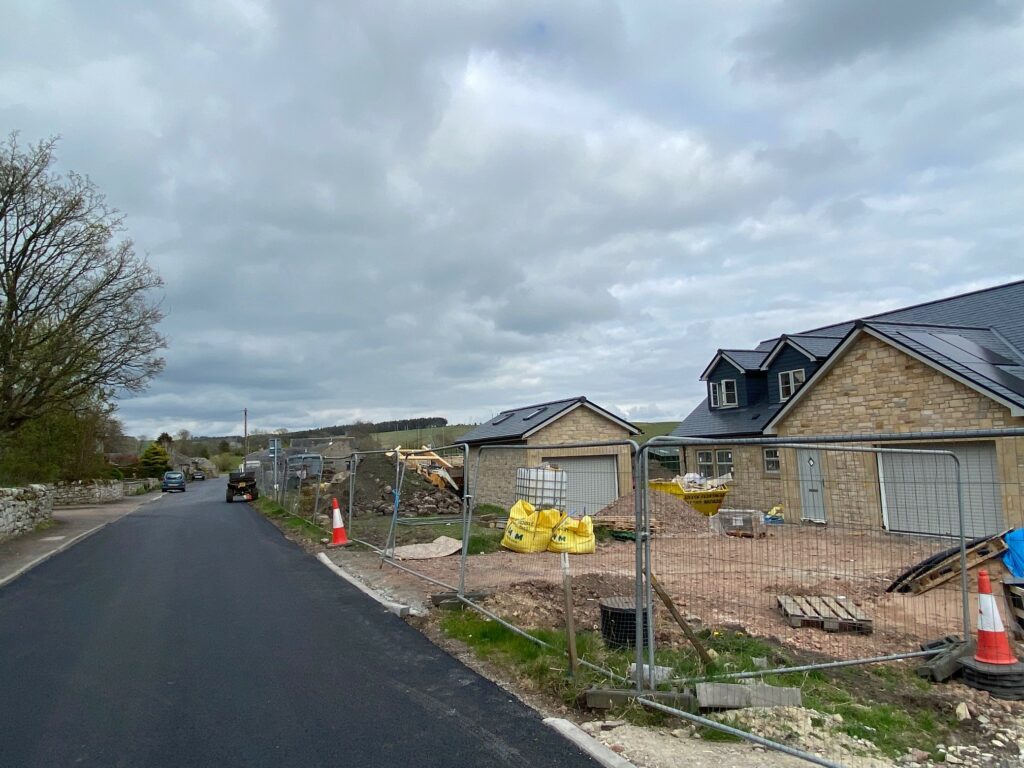
2) On 7 May 2025, within the framework of a seminar chaired by Ruth McAreavey and co-organised by the Centre for Rural Economy (CRE) and the Sociology Department of Newcastle University, Ricard Morén-Alegret gave a conference at CRE on To be a welcoming village or not to be (welcoming). His presentation was focused on rural immigration cases of Catalonia and Northumberland, giving way to a very interesting debate with various participants from the UK, Italy, China and India that may open new avenues for international collaboration.
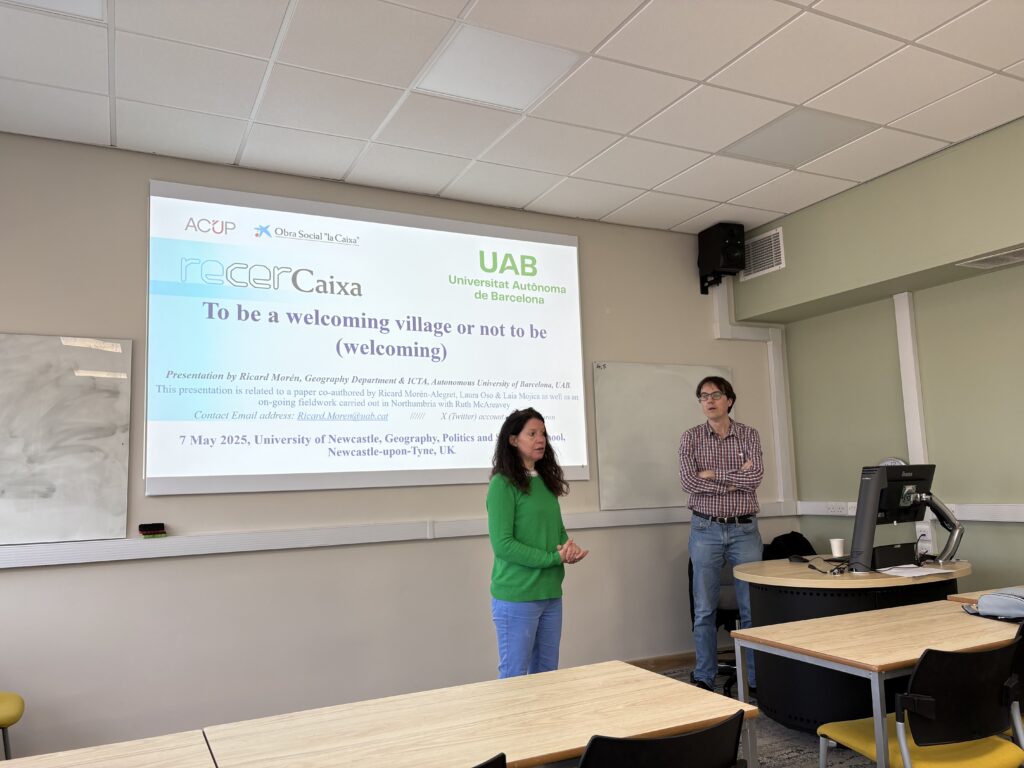
3) On 29 April 2025 an Irish Studies Network meeting was held at Newcastle University, organised by Prof Karen Corrigan. This meeting included, among others, a presentation by Ruth McAreavey and Ricard Morén-Alegret on Sustainability in Irish Villages, introducing a recently published collective article that was discussed both with Irish and British colleagues (see: https://irishgeography.ie/index.php/irishgeography/article/view/1485). This seminar opened an enriching debate that may pave the way for other future international collaborations.
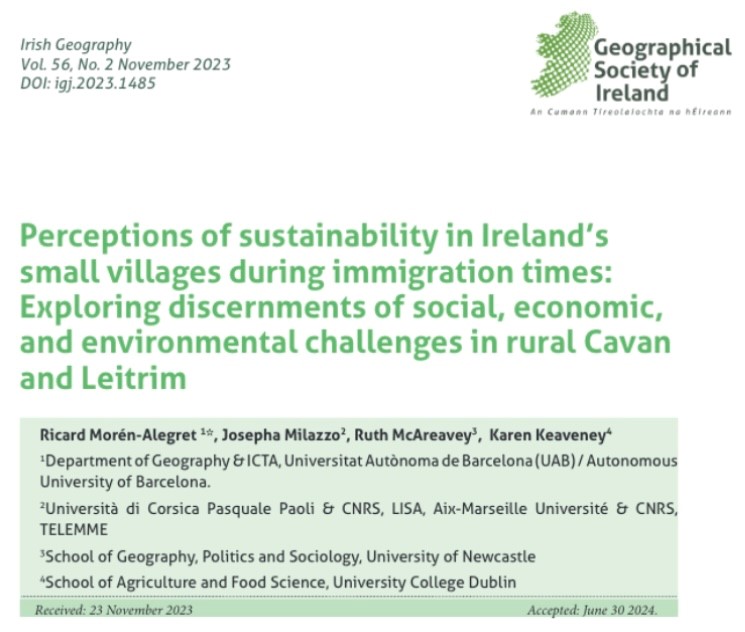
From 26 to 28 March 2025 the Annual Meeting of the research project titled Reframing Non-Metropolitan Left Behind Places Through Mobility and Alternative Development (RE-PLACE) took place at Bamberg University (Germany) and was organised by Prof Daniel Göler. This is a project co-funded by the European Union within the Horizon Europe program (2023-2027) and coordinated by IGOT at Lisbon University, Portugal, with 7 partners from 6 European countries: Universidad de Las Palmas de Gran Canaria, Latvia University, Bamberg University, La Sapienza University of Rome, ICCV of the Romanian Academy and SPI . The management structure includes the Project coordinator, Jennifer McGarrigle; the Project Officer, Amandine Desille; as well as the Work Package Leaders and the advisory board. The advisory board of this European project includes three international researchers: Thilo Lang, Leipzig University; Maria Grazia Montella, ICF; and Ricard Morén-Alegret, UAB-GEO-GRM. See: https://replace-horizon.eu/
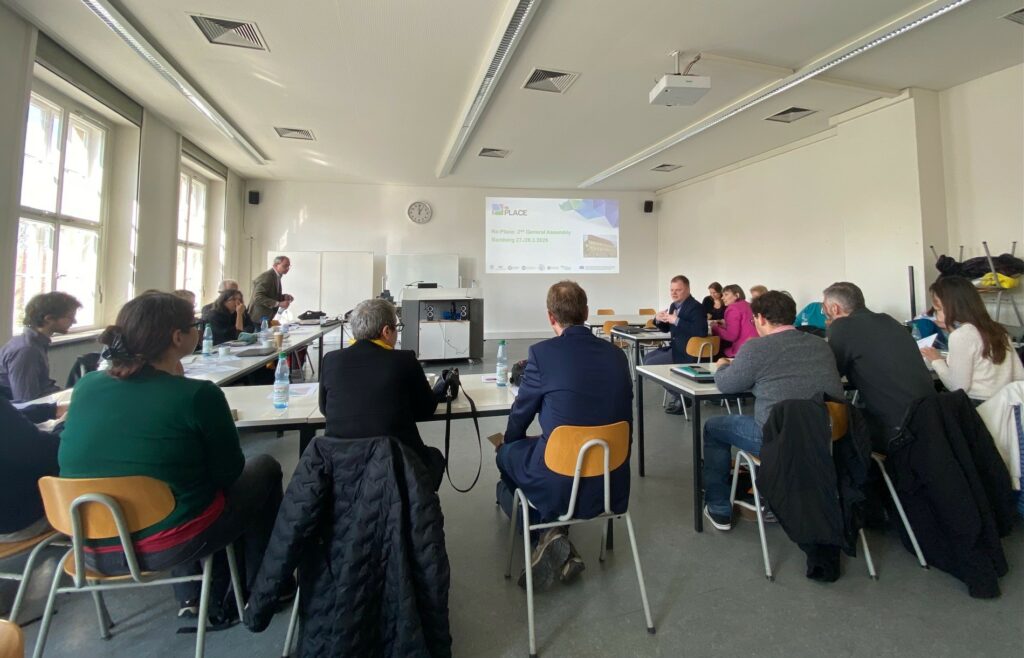
The fifth session of the 19th GRM Seminar Series on Migration Studies took place on 17 January 2025 at 10am in the UAB Humanities and Arts Faculty, including the key contribution of Jana Finke, Utrecht University, Department for Human Geography and Spatial Planning, The Netherlands. This seminar was mainly about Intersectional Perspectives on Migrants’ Initiatives in Dutch Rural Regions, paying special attention to Spaces for Learning, Agency and Connection. Jana Finke’s presentation was followed by questions and comments from other participants. The audience was coming from a variety of countries, including Chile, Germany, Spain, the Netherlands…
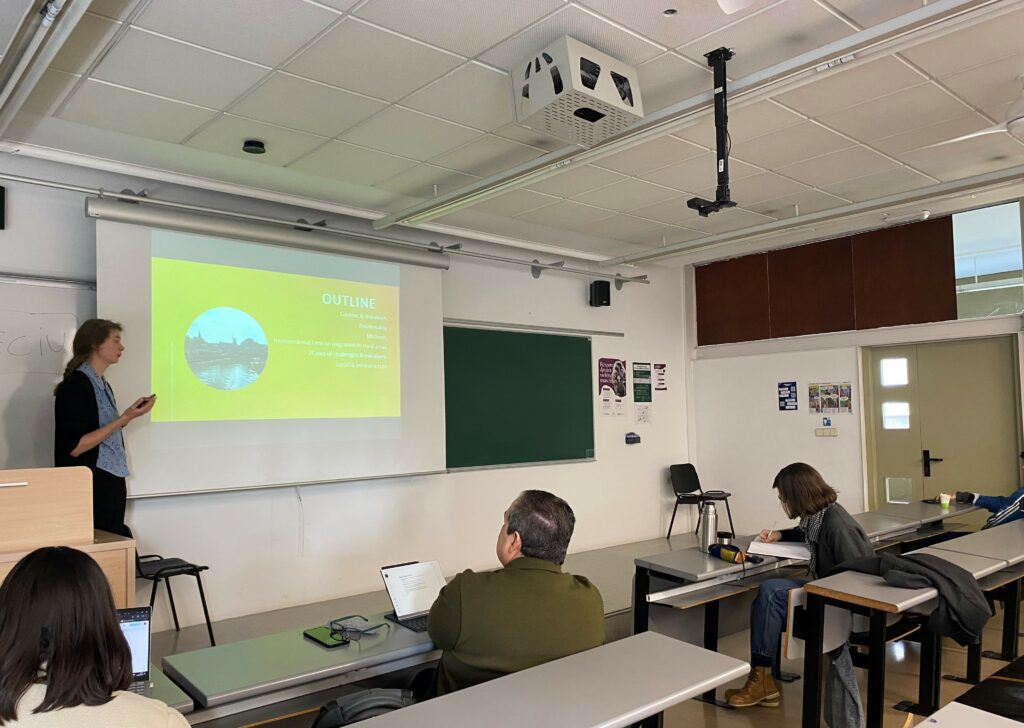
The fourth session of the 19th GRM Seminar Series on Migration Studies took place on 10 January 2025 at 10am in the UAB Humanities and Arts Faculty, including contributions of Dr Stefan Kordel and Dr Tobias Weidinger, Institute of Geography, Friedrich-Alexander-University of Erlangen-Nürnberg, Germany. This seminar was mainly on the permanence or temporalities of international immigrants in German rural areas and the role of local/regional stakeholders. Their speech was followed by questions and comments from other participants. The audience was coming from a variety of countries, including Chile, China, Germany, Poland, Russia, Spain, the Netherlands…
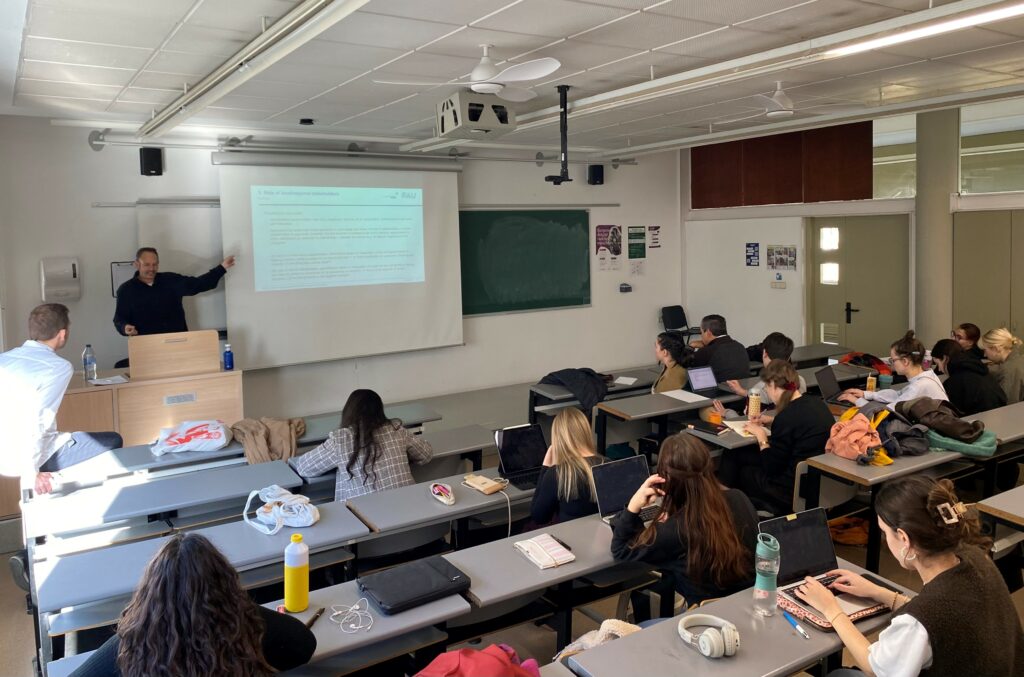
The third session of the 19th GRM Seminar Series on Migration Studies took place on 8 January 2025 at 10am in the UAB Humanities and Arts Faculty, including a presentation of Xiao Wen, UAB Tourism. Her presentation was mainly on Chinese immigrants linked to tourism in Barcelona city, focusing on the case of travel agency immigrant workers, entrepreneurs and employers from China. Her speech was followed by questions and comments from other participants. The audience was coming from a variety of countries, including Germany, Italy, Poland, Russia, Spain, the Netherlands, USA…
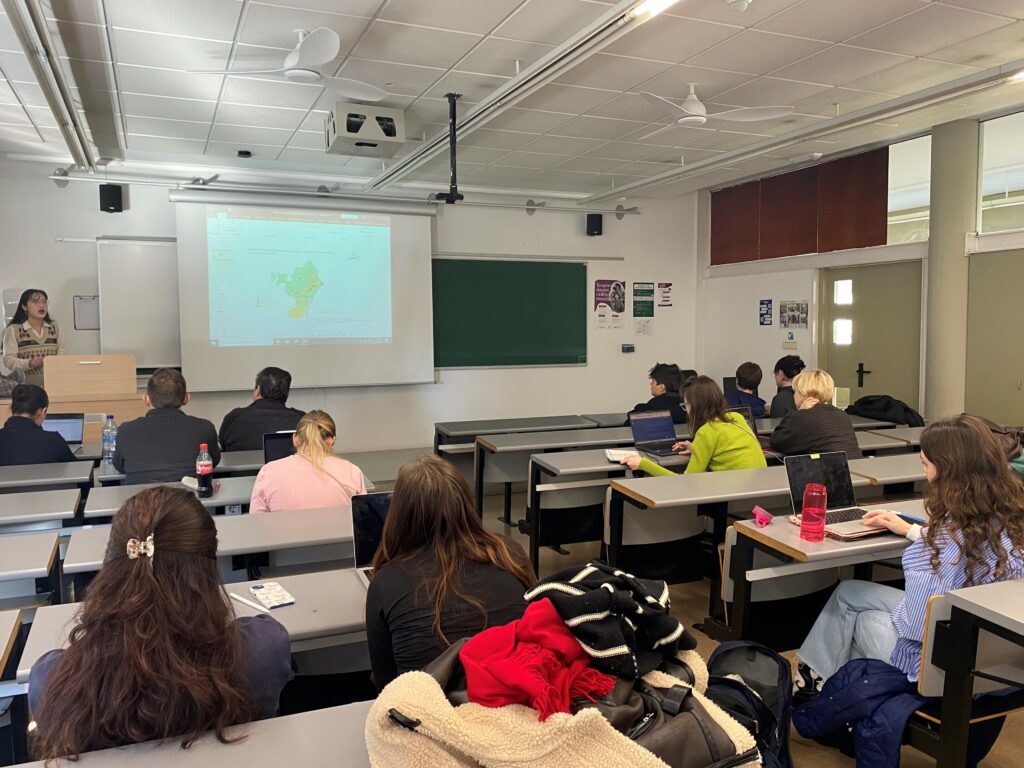
On 31 December 2024 a dossier on Migrant Mobilities and Trajectories in the Americas has been published in Revista Estudios Avanzados, EstuDAv, an academic journal edited by the Santiago de Chile University. This dossier is coordinated by Daisy Margarit-Segura, Cristina Gómez & Jorge Moragas, including among others a new open-access article linked to GRM activities -> González-Pavicich, C. & Morén-Alegret, R. (2024) Retos habitacionales de la inmigración venezolana en Iquique y Alto Hospicio: Explorando bibliográficamente y sobre el terreno estrategias y barreras. Estudios Avanzados, 41, 98-126. See: https://www.revistas.usach.cl/ojs/index.php/ideas/article/view/7087
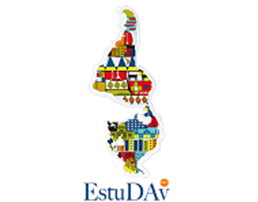
The second session of the 19th GRM Seminar Series on Migration Studies took place on 11 December 2024 at 10am in the UAB Humanities and Arts Faculty, including a presentation of Consuelo González-Pavicich, UAB, Econecol. Her presentation was mainly devoted to explain the strategies of Venezuelan immigrants to have access to housing in Iquique and Alto Hospicio (Tarapacá, Chile) and the barriers that they face there. This presentation was mainly based upon a study supported by ANID. Consuelo González-Pavicich speech was followed by questions and comments from the rest of participants who were coming from a variety of countries, including Chile, Italy, Poland, Spain, the Netherlands, the USA, Venezuela…
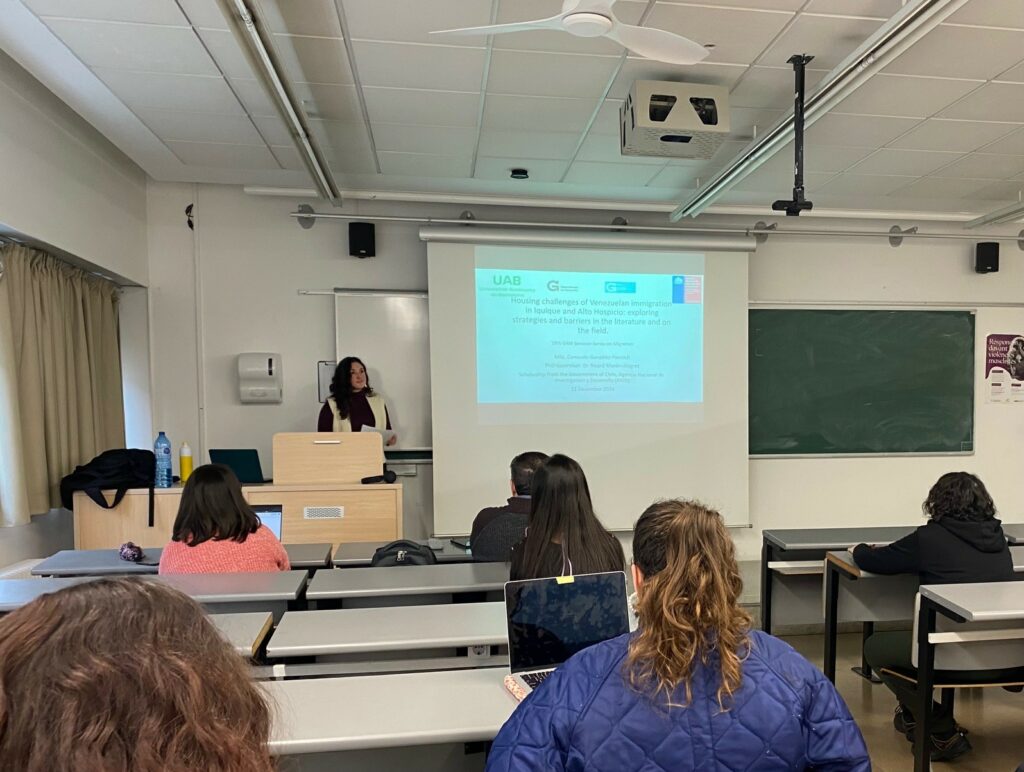
In October 2024 the Maritime Museum of Barcelona, MMB, and the Institute Ramon Muntaner, IRMU, have awarded the XXV Ricart i Giralt Research Prize to Ms Iris Triola Cors and to Dr Ricard Morén-Alegret for their project titled Immigrants’ incorporation to the fishing sector and sustainability in Catalonia: Exploring perceptions of diverse fishermen on changes and continuities. This project is being carried out from Autumn 2024 to at least Autumn 2025. For more information about it, please see: https://www.mmb.cat/blog/recerca/concessio-del-xxv-premi-de-recerca-ricart-i-giralt/
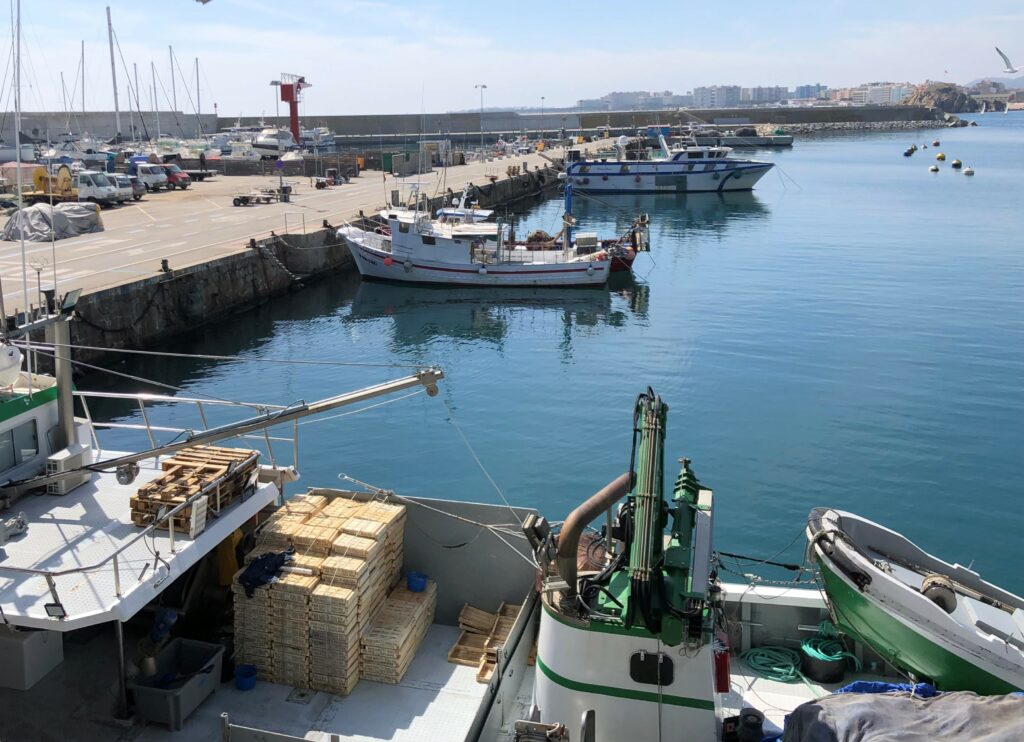
Photo: Blanes (Brave Coast), 2024
The first session of the 19th GRM Seminar Series on Migration Studies took place on 16 October 2024 at 10am in the UAB Humanities and Arts Faculty, including a presentation of Dr Lucie Bacon, MIGRINTER (CNRS-Université de Poitiers) & Institute Convergence Migrations, ICM, France. The title of her presentation was On the Western Mediterranean Migration Route: Moving in a context of control. Creation of a scientific and artistic (carto)graphic exhibition . Her speech was followed by questions and comments from the rest of participants who were coming from a variety of countries, including Chile, China, Germany, Italy, Poland, Russia, Spain, The Netherlands…

In September 2024 a new open-access article linked to GRM activities has been published by an international team of co-authors in the Swedish journal Geografiska Annaler -> Eimermann, M., Hochedez, C., Kordel, S., Morén-Alegret, R., Nijhoff, K., Tomozeiu, D., Torkington, K. & Weidinger, T. (2024). Assessing roles and strategies of public sector stakeholders in an evolving (lifestyle) migration industry: the case of the Dutch Emigration Expo. Geografiska Annaler: Series B, Human Geography, 1–21. Please, see: https://doi.org/10.1080/04353684.2024.2405671

From the 24th to the 30th of August 2024, the 35th International Geographical Congress (IGC2024) took place in Dublin, Ireland. The theme of this congress was ‘Celebrating a World of Difference’ and included the active participation of thousands of delegates from the five continents.

Among the commissions of the International Geographical Union (IGU) dealing with various migration studies, the commission on Global Change and Human Mobility, Globility, organised some sessions of the IGC2024 on several types of human migration movements. During the last years, the IGU Globility Commission has been chaired by Prof Josefina Domínguez-Mújica (ULPGC) and, in a meeting held during the IGC2024, Prof Zaiga Krisjane (Latvia University) was elected chair for the next years. See below a photograph of Globility commission members in the IGC2024:

Within this IGC2024 context, there was a session titled Villages in the age of migration and metamorphoses: Mobilities and human diversification vs. homogenisation? that is directly linked to GRM. The coordinators of this session were Josepha Milazzo (Université de Corse, France), Ricard Morén-Alegret (UAB, Spain) & Ruth McAreavey (University of Newcastle, UK). The session included presentations of Michel Lompech (Université Clermont Auvergne, France), Birgit Glorius (TU Chemnitz, Germany), Danshu Qi (South East University, China), Josepha Milazzo (Université de Corse, France) and Ricard Morén-Alegret (UAB, Spain). See below some pictures of that session and posterior meetings. For more details about IGC2024, see: https://igc2024dublin.org/
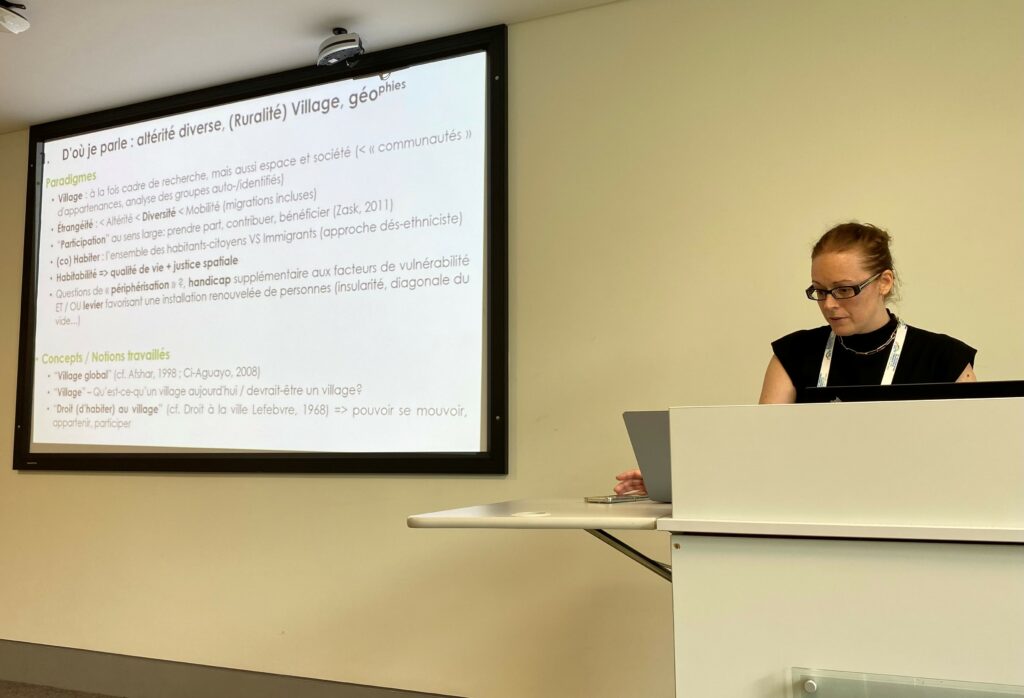



In addition, during the research visit to Ireland of August 2024, Ricard Morén also continued an exploratory fieldwork on international immigration and diversity in a small town that he had started in 2022:

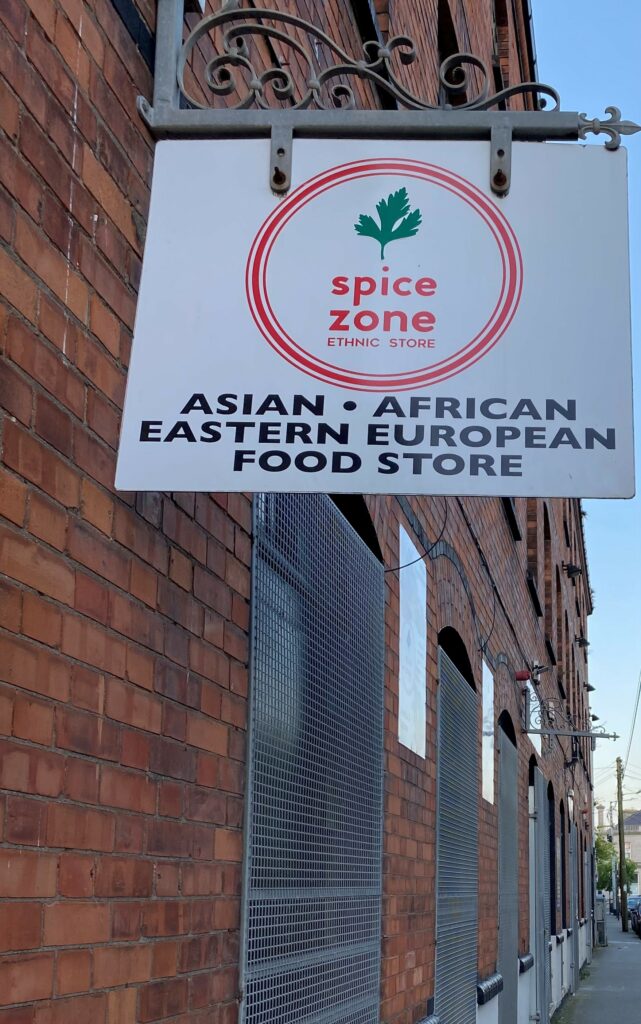
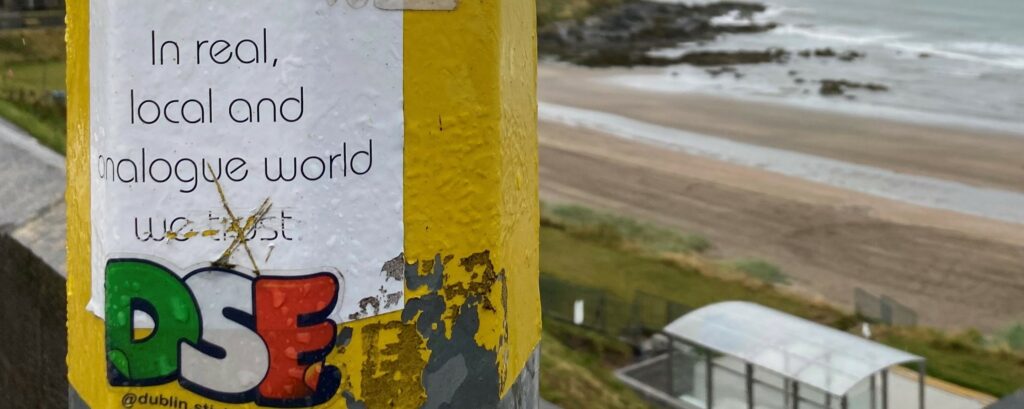
From 27 to 30 August 2024, the Annual International RGS-IBG Conference was held in London, England. On 29 August, the session Interfacing migration, development and urbanisation in Global South cities was co-organised by Karen Liao and Marta Bivant Erdal (Peace Research Institute Oslo – PRIO / PRIO Migration Centre). The session was sponsored by the Development Geographies Research Group (DEVGRG) and the Participatory Geographies Research Group (PYGYRG). In this session, Consuelo González presented the paper titled “Access to housing for the Venezuelan immigrant population in Iquique and Alto Hospicio (Tarapacá, Chile). A bibliographical and field exploration”. This presentation was based on a draft article proposal with the same title co-written with Dr Ricard Morén-Alegret. For more information, see: https://www.rgs.org/

On 11 July 2024, a research presentation titled Methodological approaches to the mobile territorialities of Venezuelan migrants in Iquique and Alto Hospicio was offered at Santiago de Chile University by Consuelo González. Her fieldwork in Chile took place with the local support of Dr Pamela Figueroa and the support from UAB of Dr Ricard Morén. The event was part of activities of the research team FONDECYT Movilidades Migrantes, which leader is Dr Daisy Margarit. Source & more information: https://www.instagram.com/p/C90yR2ko0J2/?img_index=1
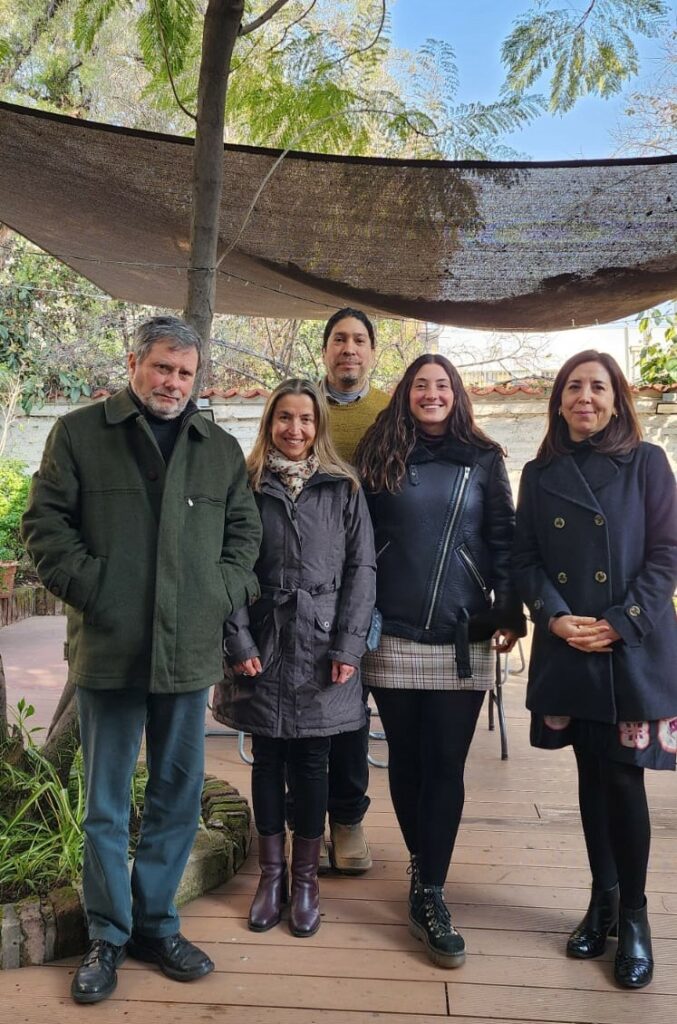
From 3 June 2024 to 17 July 2024 Prof Naïk Miret and Prof Olivier Clochard kindly hosted A Prof Ricard Morén-Alegret in France within the framework of an official research visit to the MIGRINTER lab, University of Poitiers & CNRS. See below welcoming images taken during early June 2024 in MIGRINTER:


During this period of June-July 2024, Ricard Morén-Alegret participated, among others, in the following activities in France: 1) Documentation work as well as participation in research meetings with colleagues and in sessions of the Doctoral Summer School on Migration & Globalisation at Poitiers University (see: https://ecolemetm.sciencesconf.org/); 2) Participation and presentation of a communication on the French Pyrenees at a seminar devoted to rural immigration studies in France held at Limoges University from June 27 to June 28 and linked to the IMHANA project (see: https://migrinter.cnrs.fr/recherche/projets/imhana/); 3) Fieldwork in the French Eastern Pyrenees (mainly in Cerdagne and Conflent) and research meetings with colleagues at Perpignan University (please see more information about it on X Twitter @RicardMoren https://x.com/ricardmoren):






The project titled Reframing Non-Metropolitan Left Behind Places Through Mobility and Alternative Development (Re-Place) is a project co-funded by the European Union within the Horizon Europe program (2023-2027) and coordinated by IGOT at Lisbon University, Portugal, with 7 partners from 6 European countries: Universidad de Las Palmas de Gran Canaria, Latvia University, Bamberg University, La Sapienza University of Rome, ICCV of the Romanian Academy and SPI (see: https://replace-horizon.eu/). The management structure includes the Project coordinator, Jennifer McGarrigle, the Project Officer, the Work Package Leaders, and the advisory board. On 18 and 19 April 2024, the general meeting of the RE-PLACE project took place at Latvia University, in Riga, and communications of preliminary outcomes of the project are presented in August 2024 during the 35th International Geography Congress in Dublin, IGC2024. In addition, among other previous gatherings, on 26 September 2023 IGOT already organized the first meeting of the project advisory board (see: https://replace-horizon.eu/about/#board). The advisory board of this European project includes three international researchers: Thilo Lang, Leipzig University; Maria Grazia Montella, ICF; and Ricard Morén-Alegret, UAB-GEO-GRM. More information: https://replace-horizon.eu/2023/11/03/launching-the-re-place-international-advisory-board/

An OPEN-ACCESS ARTICLE linked to GRM has been published in the IRISH GEOGRAPHY journal, Vol. 56, No. 2. November 2023. DOI: igj.2023.1485. This article is titled Perceptions of sustainability in Ireland’s small villages during immigration times: Exploring discernments of social, economic, and environmental challenges in rural Cavan and Leitrim and co-authored by an international team composed by Ricard Morén-Alegret, Josepha Milazzo, Ruth McAreavey & Karen Keaveney. See: https://irishgeography.ie/index.php/irishgeography/article/view/1485/1199

From 4 to 6 October 2023, a Forum linked to the European Welcoming Spaces project took place in Santiago de Compostela, Galicia, Spain (see: https://www.welcomingspaces.eu/). The forum was mainly organised by ESOMI (A Coruña University) and CEPAIM. Among other activities, on 5 October 2023, Laura Oso (ESOMI) coordinated a session on rural immigration and development that included research presentations by Àngels Escrivá (Huelva University), Raúl Lardiés (Zaragoza University) and Ricard Morén-Alegret (UAB). See: https://www.welcomingspaces.eu/focusing-on-migrant-emplacement-and-inclusive-development-in-left-behind-areas-ws-conference-in-santiago-de-compostela-spain-4-6-october-2023/
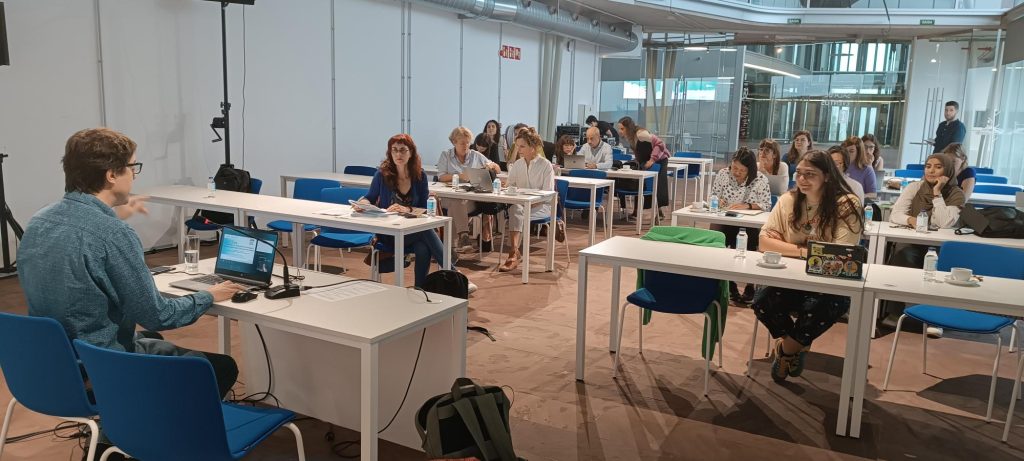
Source: https://twitter.com › esomi_udc
In September 2023 , after two decades collaborating with the UAB Doctoral Programme in Geography (e.g., currently hosting a Chilean PhD student who carries out research on international immigration in Tarapacá region with an ANID scholarship), GRM has also started to collaborate with the UAB Doctoral Programme in Tourism Studies. Concretely, now a PhD student from China studies the relations between Chinese immigration and tourism in the Barcelona region.
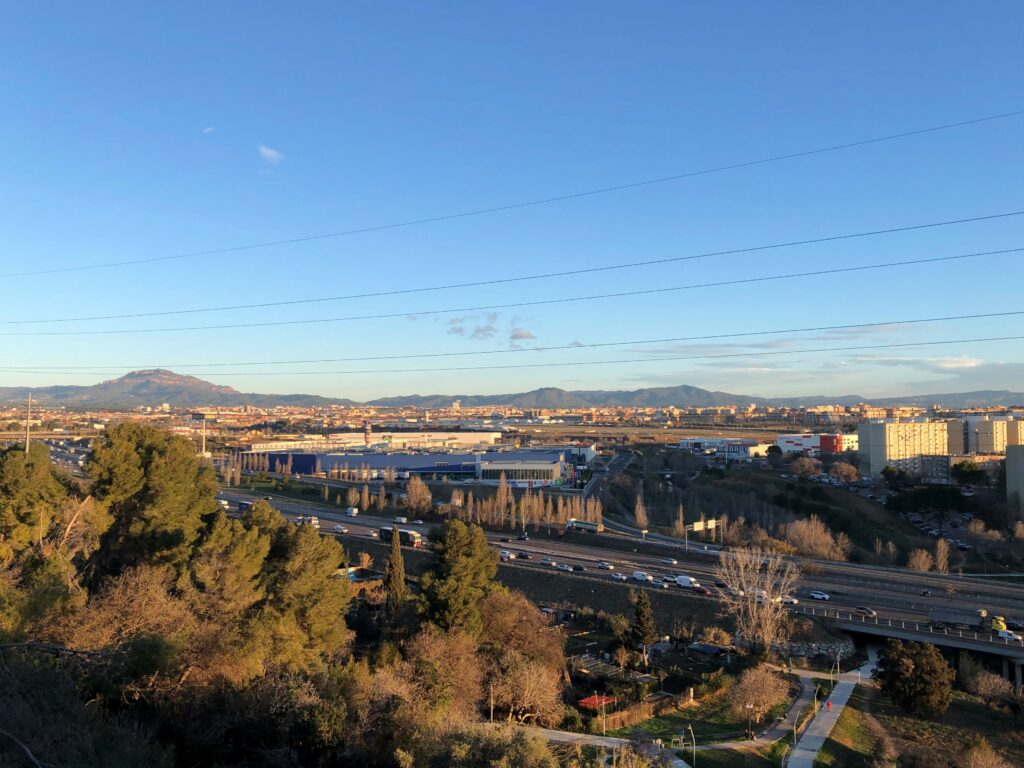
In the summer of 2023, the following open-access and empirical article on international migration studies that is linked to GRM has been published: *Mendoza, Cristóbal (2023) “International immigration and entrepreneurship in rural areas of the Spanish Pyrenees”. Hungarian Geographical Bulletin, 72 (2), 119-131. This article is one of the outcomes of the SURDIM project on Sustainable Rural Development and International Immigration in the Pyrenees that has been co-funded by the European Commission. The SURDIM project has been carried out at UAB from the 1st of November 2021 to the 31st of August 2023, including the participation of Cristóbal Mendoza as MSCA Fellow, William Berthomière as co-supervisor at the CNRS, Giorgos Kallis as ICTA co-supervisor and Ricard Morén-Alegret as Principal Investigator. More information: https://atlantis.uab.cat/hamlets/en/index.html
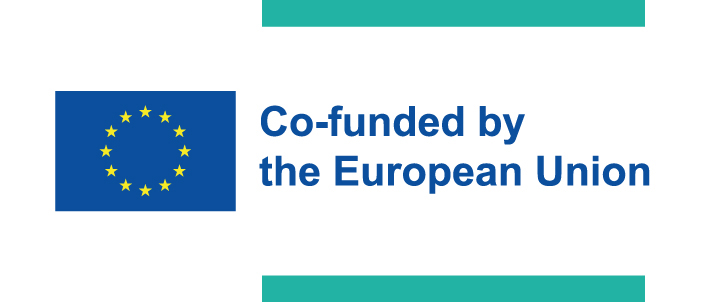
In July 2023 the following open-access and reflective article on migration studies has been published: *CUBILLOS-ALMENDRA, Javiera; GONZÁLEZ-PACIVICH, Consuelo & CONTRERAS-HERNÁNDEZ, Paola (2023) Intersectionality. A Theoretical-methodological Device for the Study of Migration, Revista Austral de Ciencias Sociales, 44, 129-150. See: http://revistas.uach.cl/index.php/racs/article/view/7166

From 3 July to 7 July 2023 the 29th Congress of the European Society for Rural Sociology, ESRS, took place in Rennes, France. The congress dealt with crises and futures of rural areas, including the participation of various migration scholars linked to GRM: Ruth McAreavey (Newcastle University), Josepha Milazzo (Aix-Marseille Université), and Ricard Morén-Alegret (UAB). See: https://esrs2023.sciencesconf.org/

From 14 to 16 September 2022 the 10th Congress on Migration took place in Madrid, Spain, including the participation of hundreds of scholars from a wide variety of Spanish and international universities and institutions, see: https://congresomigraciones2022.com/. Among others, another presentation of preliminary results from the SURDIM research project on international immigration in the Pyrenees took place in Madrid. For information on the SURDIM project funded by the European Commission thanks to the MSCA Programme, see: https://atlantis.uab.cat/hamlets/en/index.html.

From 18 July to 22 July 2022 the Centennial International Geographical Union (IGU) Congress took place in Paris, France. Among other IGU commissions dealing with various migration studies, the commission on Global Change and Human Mobility (Globility) organised some sessions on several types of human migration movements. The IGU Globility Commission is chaired by Prof Josefina Domínguez-Mújica (ULPGC) and some researchers linked to GRM (i.e. Dr Cristóbal Mendoza, Dr Josepha Milazzo and Dr Ricard Morén-Alegret) participated in different ways there. Within that congress, a presentation of preliminary results from the SURDIM research project on international immigration in the Pyrenees took place in Paris. For information on the SURDIM project funded by the European Commission thanks to the MSCA Programme, see: https://atlantis.uab.cat/hamlets/en/index.html. In addition, for more details on that key geographical congress, see: https://www.ugiparis2022.org/
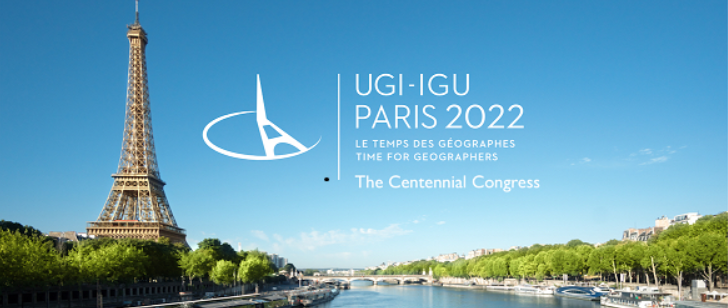
GRM (http://geografia.uab.es/migracions/)*** presents the…
18th GRM Seminar Series on Migration
Department of Geography & ICTA, Autonomous University of Barcelona, UAB-GEO-GRM
February – May 2022 Programme
10 February 2022, 13h, F. Lucienne Crettex, COLEF, Tijuana, Mexico:
(Undocumented) international immigration in Los Ángeles, USA, and Barcelona, Spain
17 February 2022, 13h, Dr Raúl Lardiés, Universidad de Zaragoza, Spain:
Foreign immigration from outside the EU in rural areas of Aragón: impacts and integration
21 March 2022, 13h, Dr Montserrat Feixas, UNHCR in Central Europe from 2013 to 2021, Hungary:
Asylum challenges in Central Europe. The 2015 crisis and its consequences
28 April 2022, 13h, Dr Valeria Bello, Universitat Ramon Llull, URL, Spain:
The role of prejudice and cognitions in the governance of international migration
12 May 2022, 13h, Dr Kevin Mary, Université de Perpignan Via Domitia, France:
Migration-facilitating capital: Attracting and (socially) selecting African students for Canada
If the pandemic situation allows, all sessions are open to the public and will take place in Aula 203 at the Arts & Humanities Faculty (Facultat de Filosofia i Lletres), Universitat Autònoma de Barcelona, UAB. This venue is placed in Bellaterra campus (Accessibility info: https://www.uab.cat/web/about-the-faculty/access-and-maps-1345695633523.html). All participants must follow the relevant instructions of the university authorities (see: https://www.uab.cat/web/about-the-uab/itineraries/coronavirus/useful-information-1345809701134.html). There will not be on-line sessions but, if necessary and possible, some sessions could be postponed to next years.
*Seats will be available on a first-come, first-served, basis. The venue has limited capacity.
**Please, before attending a seminar, outside visitors are advised to check the @RicardMoren Twitter account (see: https://twitter.com/ricardmoren) in order to confirm details and to take into account possible last minute changes.
*** If everything goes well, along 2022 the website linked to the UAB-GEO Generators of Research on Migration, GRM (i.e. the Gallery of Research on Migration, GRM) should be available again, once the UAB fully recovers from the massive cyber-attack that this university suffered in Autumn 2021.
These seminars are mainly co-funded by the UAB Arts & Humanities Faculty and the UAB Geography Department as well as are held within the framework of the ECONECOL Research Group (SGR2017, AGAUR, ref. 01126).
Dr Ricard Morén-Alegret is the coordinator of all these seminars, with support from Dr Cristóbal Mendoza in some sessions. The GRM coordinator is grateful to the Dean team of the UAB Arts & Humanities Faculty plus to the Director of the Geography Department for their support.
In January 2022 a new outcome of the HAMLETS research project (funded by the RECERCAIXA programme; see below) has been published as open-acess publication. Concretely, an academic article co-authored by Dr Ricard Morén-Alegret and Dr Cristóbal Mendoza has been pulished in an international journal on migration studies, see: Morén-Alegret, R. & Mendoza, C. (2021) “Inmigración internacional y sostenibilidad en pueblos pequeños. Retos y oportunidades económicas, ambientales y sociales en el Alt Empordà (Cataluña, España)”, Revista Internacional de Estudios Migratorios, 11(2), pp. 1-35 (https://ojs.ual.es/ojs/index.php/RIEM/article/view/4755)
In early November 2021 a new research project on Sustainable Rural Development and International Immigration in the Pyrenees (SURDIM) has started at UAB. The research objectives are: 1) conduct a critical theoretical exercise of international immigration in rural settings; 2) analyse immigrant pathways of labour/economic incorporation in selected French and Spanish Pyrenean municipalities to identify sustainable economic projects managed/supported by immigrants, and present successful experiences in terms of rural development; 3) study settlement processes of immigrants in selected municipalities, analysing challenges for social incorporation in rural communities, and exploring issues on well-being and inter-cultural aspects; 4) continue updating and extending to other parts of Spain and France the existing Geographical Information System (GIS) in order to contribute to policy and societal debates on immigration in rural areas. Objective 1 will be achieved through comprehensive desktop research to collect and analyse scientific and policy literature relevant to locate pertinent concepts and theoretical frameworks. O2 and O3 will be attained through primary qualitative data analysis collected in semi-structured interviews with immigrants and key informants, and complemented with participant observation. Through statistical compilation and fieldwork for O2 and O3, statistical data and photo material at a local level will be incorporated into an open-access GIS (O4). The SURDIM project is mainly carried by Dr Cristóbal Mendoza (MSCA researcher), with Dr Ricard Morén-Alegret as Principal Investigator (PI, Departament de Geografia & ICTA), Dr Giorgos Kallis as co-supervisor at ICTA and Dr William Berthomière as co-supervisor at the CNRS (France). This project has a duration of at least two years. More information about it could be found at the following link: https://cordis.europa.eu/project/id/101023968
In July 2021 an academic article titled “‘Cosmovillagers’ as Sustainable Rural Development Actors in Mountain Hamlets? International Immigrant Entrepreneurs’ Perceptions of Sustainability in the Lleida Pyrenees (Catalonia, Spain)“ has been published in the European Countryside journal, vol. 13, Nº2, 2021, pp. 267-296. This is an illustrated article co-authored by Ricard Morén-Alegret, Josepha Milazzo, Francesc Romagosa & Giorgos Kallis that is an outcome of the research project “HAMLETS. Immigration and Sustainable Development in Small Villages” (2017-2020). This project was mainly carried out from the UAB Geography Department and ICTA, directed by Ricard Morén-Alegret and funded thanks to the RecerCaixa Programme, an iniciative of the Catalan Association of Public Universities (ACUP) and ‘La Caixa’ Foundation. In this project various municipal organisations collaborated along the years, including the Association of Small Villages in Catalonia and the Spanish Association of Mountain Municipalities (EsMontañas).

On 22 June 2021 three Final Degree Essays (TFGs) of the UAB‘s BA in Geography were presented at UAB, focusing on human population changes in small villages of Catalonia and the Balearic Islands (Spain). These TFGs have used, among other data sources, the Geographical Information System for Active and Sustainable Hamlets (GISASH) that is linked to the project titled HAMLETS. Immigration and Sustainable Development in Small Villages. The authors and titles of the TFGs are the following ones:
* Ada Sedó: The recent evolution of rural Priorat’s population and economy: a geographic analysis of the microvillage of la Bisbal de Falset (Tarragona).
* Roger Escribà: (Re)Depopulation in small villages of Urgell county (Lleida). A geographical analysis of municipalities with fewer than 500 inhabitants.
* Toni Barceló: Geographical comparison on environmental, social and economic sustainability in villages of Empordà (Girona) and Mallorca (Balearic Islands). An analysis of Colera and Deià.
The aforementioned three TFGs were supervised by Ricard Morén-Alegret. The HAMLETS research project (2017-2020) was carried out from the UAB Geography Department and ICTA, and was funded by RecerCaixa Programme, an initiative of Associació Catalana d’Universitats Públiques (ACUP) and Fundació ‘la Caixa’. This project was directed by Ricard Morén-Alegret and counted with the collaboration of several municipal organisations, including Associació de Micropobles de Catalunya and Asociación Española de Municipios de Montaña (EsMontañas).
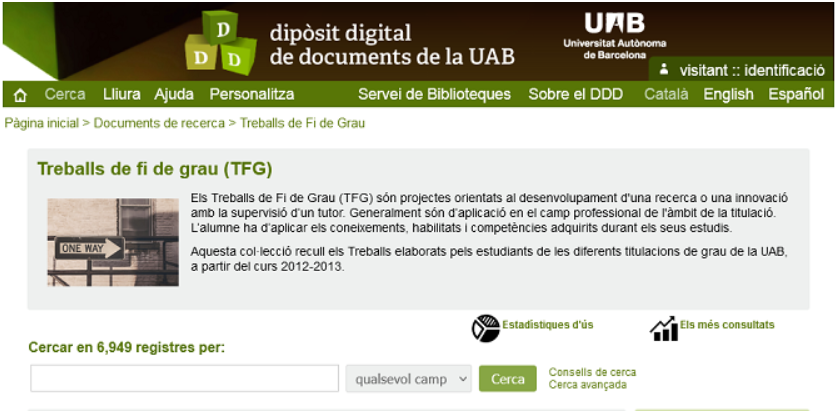
On 21 June 2021 the UAB IRWANA research group organised a seminar titled La dimensión transnacional en el Norte de África y Asia Occidental. This was the final seminar of the R+D project coordinated by Laura Feliu & Ferran Izquierdo that is titled “Dinámicas y actores transnacionales en Oriente Medio y Norte de África” (2017-2021). This project is funded by the Spanish Government Ministry for Economy, the Spanish State Research Agency (AEI) and FEDER. This seminar was semi-presential, including some participants contributing from the UAB Political Science and Sociology Faculty and other participants contributing telematically from a variety of places. GRM-UAB participated in the session that took place from 15.30h to 17.00 h, that was titled “La agenda transnacional a estudio desde el grupo IRWANA” and that included the following participants: Laura Feliu (UAB), Natalia Ribas Mateos (UAB), Josep Lluis Mateo Dieste (UAB), Isaías Barreñada Bajo (Universidad Complutense de Madrid), Luciano Zaccara (Qatar University) and Ricard Morén-Alegret (UAB). Olivia Glombitza (UAB) was the chair of that session. See more information in the following link: https://irmena.net/2021/06/03/la-dimension-transnacional-en-el-norte-de-africa-y-asia-occidental/
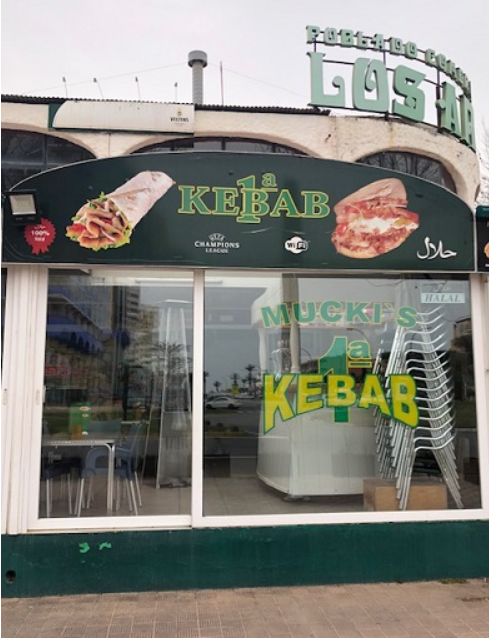
Photo: @RicardMoren
On 10 and 11 June 2021, the 17th Population Conference promoted by the Spanish Association of Geography (Asociación Española de Geografía, AGE) took place in semi-presential format, with some participants physically located in Aragon and others participating telematically from other places. The organisers of this congress were the Population Geography Working Group of AGE, the Department of Geography and Regional Planning at Zaragoza University and GEOT research group. Research staff from universities and teams of various countries participated in the scientific committee of that congress, including UAB-GRM researchers. In addition, among the communications presented in that congress, there was one linked to UAB-GRM that is the outcome of the project titled HAMLETS. Immigration and Sustainable Development in Small Villages (funded by the RECERCAIXA 2016 Programme): Morén-Alegret, R. & Mendoza, C. (2021) “Inmigración internacional en pueblos pequeños del Alt Empordà (Girona, Cataluña). Percepciones de inmigrantes cualificados sobre sostenibilidad económica, social y ambiental”. For more details, please see: https://17congresopoblacion.unizar.es/index_en.html
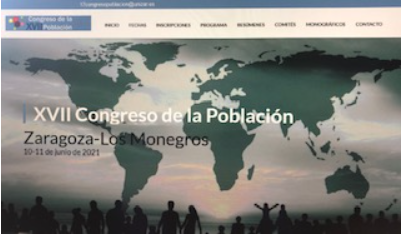
On 28 May 2021 the PhD thesis on migration studies authored by Julie Fromentin (linked to Université París 1 Pantheon Sorbone) and titled “Parcours singuliers, campagnes plurielles. L’inscription spatial des immigrés dans les espaces peu denses français” was presented in the INED headquarters in Paris (France). This thesis has been co-supervised by France Guérin-Pace (INED) and Christophe Imbert (Université de Rouen). This international presential PhD Viva event had a duration of four hours and the evaluation jury was composed by professors from other universities in France, Belgium and Spain: M. Poulot (Université Paris-Nanterre), S. Weber (Université Paris-Est), J.M. Decroly (Université Libre de Bruxelles), G. Cortes (Université de Montpellier) and Ricard Morén-Alegret (UAB).
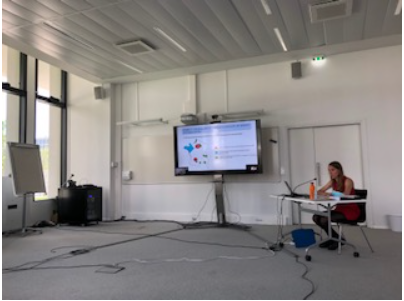
In spring 2021 a new product of the Spanish Network of Excelence in Migration Studies (REsMI) has been published. Concretely, this spring the platform of the Documentation Centre on Migration Studies (Centro de Documentación en Estudios Migratorios, CDEM) has been launched on-line. This resource is available in the following website: https://cdem.info. This digital tool allows access to three repositories with production that has taken place in Spain: doctoral theses, scientific articles and congress papers. REsMi took place within the framework of the “Redes de Excelencia” linked to the Spanish Programa Estatal de Fomento de la Investigación Científica y Técnica de Excelencia. The PI of REsMi was F. Javier García Castaño (Universidad de Granada) and counted with the participation of researchers from various universities in Andalusia, Basque Country, Catalonia, Galicia, Madrid and Valencia, including at UAB Andreu Domingo, Silvia Carrasco and Ricard Morén-Alegret.
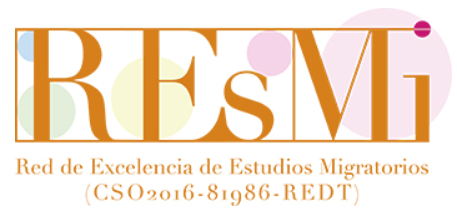
In February 2021 the European Commission has granted a MSCA Fellowship to the UAB Department of Geografia and ICTA for carrying out the research project titled Sustainable Rural Development and International Immigration in the Pyrenees, SURDIM, linked to UAB-GRM. During 2022 and 2023, this project will include fieldwork in various territories of France and Spain. The beneficiary of the fellowship is Cristóbal Mendoza (a researcher coming from UAM, Mexico) and the Principal Investigator is Ricard Morén-Alegret (UAB). See: https://www.uab.cat/web/newsroom/news-detail/the-uab-awarded-seven-msca-individual-fellowship-projects-1345668003610.html?noticiaid=1345836728656
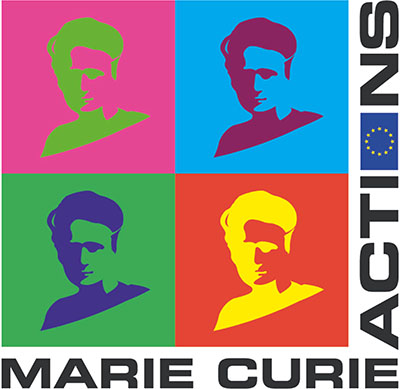
In December 2020, two additional articles have been published in open-access journals as the outcome of the research project titled“HAMLETS. Immigration and Sustainable Development in Small Villages“:
*Romagosa, F.; Mendoza, C.; Mojica, L. & Morén-Alegret, R. (2020), “Inmigración internacional y turismo en espacios rurales. El caso de los ‘micropueblos’ de Cataluña”. Cuadernos de Turismo, 46, pp. 319-347. See: https://revistas.um.es/turismo/article/view/451861/296221.
*Mendoza, C.; Morén-Alegret, R. & McAreavey, R. (2020), “(Lifestyle) immigrant entrepreneurs in Spanish small villages: Rethinking international immigration in rural Alt Empordà, Catalonia”, BELGEO. Belgian Journal of Geography, 2020, nº1. See: https://journals.openedition.org/belgeo/44107.
The HAMLETS research project (2017-2020) has been carried out from UAB, directed by Ricard Morén-Alegret and funded by RecerCaixa Programme, an initiative of Associació Catalana d’Universitats Públiques (ACUP) and Fundació ‘la Caixa’. In this project collaborated several municipal organisations, including Associació de Micropobles de Catalunya and Asociación Española de Municipios de Montaña (EsMontañas).

In November 2020, the article titled “Inmigración internacional y emprendimiento en áreas rurales de España: Dinamismo y movilidades en pueblos pequeños del Empordà, Cataluña” has been published in the international academic journal Investigaciones Geográficas. The article can be freely downloaded as PDF from the following link to the Investigaciones Geográficas journal’s website: http://www.investigacionesgeograficas.unam.mx/index.php/rig/article/view/60172/54161. The co-authors of the article are Cristóbal Mendoza (UAM, Mexico), Ricard Morén-Alegret (UAB) and Ruth McAreavey (University of Newcastle, UK). This is the first open-access article published as fruit of the last stage of the research project “HAMLETS. Immigration and sustainable development in small villages” (2017-2020), mainly carried out from UAB, directed by Ricard Morén-Alegret and funded by RecerCaixa Programme, an initiative of Associació Catalana d’Universitats Públiques (ACUP) and Fundació ‘la Caixa’. In this project collaborated several municipal organisations, including Associació de Micropobles de Catalunya and Asociación Española de Municipios de Montaña (EsMontañas).
During the second semester of 2020, the Cuadernos Geográficos journal of Granada University has published a special issue titled New mobilities between Spain and Latin America: Return versus rooting and return to emigration, concretely issue 3, volume 59. Among others, an article titled “Enquêter des migrants étrangers habitant un village” and signed by Josepha Milazzo can be found there (pp. 79-101). This article is related with her PhD thesis (2018) carried out within the framework of an international cooperation agreement between Aix-Marseille Université (AMU) and Autonomous University of Barcelona (UAB). Virginie Baby-Collin and Ricard Morén-Alegret were the co-directors of that PhD thesis. Please, see: https://revistaseug.ugr.es/index.php/cuadgeo/article/view/9226
Our deepest condolences from UAB-GRM to the family, friends and Warwick University colleagues upon the passing of Professor Zig Layton-Henry in September 2020. Zig was an expert in the field of migration, race and ethnic relations in British politics where he was a scholar of very significant national and international standing. For more information, please see the memorial published in the following link: https://warwick.ac.uk/fac/soc/pais/news/?newsItem=8a17841b747be47201748bd124c419a0 . In addition, please read the Obituary published in The Guardian: https://www.theguardian.com/world/2020/nov/05/zygmunt-layton-henry-obituary
During spring, summer and autumn 2020, the UAB-GRM research on international immigration in European villages continues at three levels: 1) On the one hand, the analysis of a variety of data gathered during the project titled “HAMLETS. Immigration and sustainable development in small villages“ (2017-2020) goes on, including both qualitative and quantitative data analysis [this project is funded by the Recercaixa Programme, with support from ‘la Caixa’ and collaboration of the Public Universities Association in Catalonia, ACUP; for a general presentation, see: www.uab.es/hamlets; and for weekly publications, see: https://twitter.com/ricardmoren]. 2) On the other hand, the exploratory study on the Middle East and North African immigration in rural Catalonia also continues. This task is carried out within the framework of the TRANS-MENA project (2017-2021), funded by the Spanish Government, AEI and FEDER, see: https://irmena.net/2018/07/09/researching-the-transnational/. 3) In addition, the collaboration with the project titled “CAMIGRI. The French countryside within international migration dynamics” goes on too (2018-2021). This project is funded by the Agence Nationale de la Recherche (ANR) of France and the Région Nouvelle-Aquitaine, see: https://camigri.hypotheses.org/
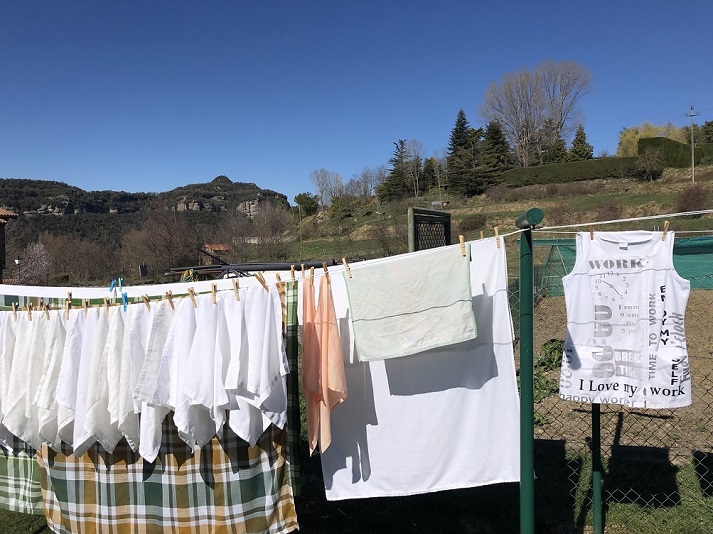
Photo: https://twitter.com/ricardmoren
GALERIA de RECERCA sobre MIGRACIONS, GRM
http://geografia.uab.es/migracions/
postpones the
18th GRM Annual Seminar Series on Migration
UAB Department of Geography & ICTA, UAB-GEO-GRM
2020 PROGRAMME POSTPONED*:
–> Valeria Bello, Universitat Ramon Llull, URL: “The role of prejudice and cognitions in the governance of the migration phenomenon“
–> Kevin Mary, Université de Perpignan Via Domitia, UPVD:“Migration-Facilitating Capital: Attracting and (socially) selecting African students for Canada“
*These two sessions and other sessions of the 18th GRM Annual Seminar Series on Migration were scheduled for April and May 2020 but have been postponed sine die due to the COVID19 crisis (see: https://www.uab.cat/web/newsroom/news-detail/the-uab-suspends-all-on-site-activities-1345668003610.html?noticiaid=1345809696467). As in previous years, the venue was going to be the UAB Humanities and Arts Faculty at the Autonomous University of Barcelona (Universitat Autònoma de Barcelona, UAB).
**If the aforementioned seminars can take place at a later stage, additional information and details would be published on this website.
Currently the GRM seminars are held within the framework of the ECONECOL Research Group (SGR2017-2020, AGAUR, ref. 01126) and the UAB Doctoral Studies Programme in Geography. The GRM seminars are coordinated by Dr Ricard Morén-Alegret.
On the 5th of February 2020 a conference-forum took place in the Macaya Palace of Barcelona city (Catalonia, Spain) with the participation of various academics and representatives from local governments, rural development organisations, immigrant associations, employers’ organisations and trade unions, among others. This activity was linked to the UAB research project titled “HAMLETS. Immigration and sustainable Development in Small Villages”. This is a project funded from 2017 to 2020 by the RecerCaixa Programme, with support from La Caixa and the collaboration of the Association of Catalan Public Universities, ACUP.
The meeting began at 6:30pm with a welcoming speech by Josep Ollé, director of Palau Macaya and representative from La Caixa, as well as speeches by representatives from the organisations collaborating with the project: Francés X. Boya, President of the Asociación Española de Municipios de Montaña (EsMontañas) and Síndic d’Aran; Mireia Font, manager of Consorci Grup d’Acció Local Alt Urgell–Cerdanya; and Mario Urrea, President of Associació de Micropobles de Catalunya. In addition, there were Unió de Pagesos, the Institut Agrícola and the Associació d’Empresaris Agraris. In addition, there were introductory speeches by Sebastià Notario (Fundació Pagesos Solidaris & Unió de Pagesos) and Baldiri Ros, President of Institut Agrícola – Associació d’Empresaris Agraris.
Following the welcoming speeches, William Berthomière, researcher at the Centre National de la Recherche Scientifique (CNRS), France, presented the results of the CAMIGRI project. He then gave way to the presentation of the results of the HAMLETS project by Ricard Morén-Alegret (Principal Investigator) and researchers Cristóbal Mendoza and Francesc Romagosa.
The meeting closed with a debate that started at 7:45pm on the current situation and the perspectives in sustainable development at social, economic and environmental levels of villages with less than 500 registered inhabitants. In addition to the aforementioned persons, contributing in the debate there were the following relevant participants: Eva Viñolas (Diputació de Girona), Gaëlle Patin-Laloy (Casa Asia), Albert Puigvert (Associació d’Iniciatives Rurals de Catalunya, ARCA), Magí Rovira (Federació de Municipis de Catalunya, FMC), Lluís Corominas (Associació Catalana de Municipis, ACM) and Janette Vallejo (AMIC from UGT trade union, among other organisations. The debate lasted until 8:30pm.
The project “HAMLETS. Immigration and sustainable development in small villages” has the objective of studying the human geography, sustainability and debate on the “existence or non-existence” of small villages with fewer than 500 inhabitants. The project’s main hypothesis is that both international and internal immigration can potentially help to contribute socially, economically, environmentally and culturally to the sustainable development of many small villages. The global results of the project, which will be presented at the end of this year 2020, will serve to learn more about the arrival and adaptation of migrants to small villages, establish actions with migrants by implementing sustainable development initiatives and help municipalities with the arrival and reception of newcomers, with solutions such as the Geographical Information System (GIS) for Active and Sustainable Hamlets (GISASH), which was put into practice last year.
Instances of the Macaya Palace conference-forum impact in the mass media:
*CADENA SER (Radio station) – HORA 14 CATALUNYA (radio program) – 8 February 2020, 14:14h – 00:02:09 minutes:
#SOCIETY. CATALONIA.THIS WEEK UAB HAS ORGANISED A GATHERING WITH PARTICIPATION OF DIFERENT ORGANISATIONS IN ORDER TO DISCUSS THE CHALENGES OF THE CATALAN VILLAGES WITH FEWER INHABITANTS. DECLARATIONS OF RICARD MOREN, PRINCIPAL INVESTIGATOR AT UAB, AND MARIO URREA, MAYOR OF TORREBESSES & PRESIDENT OF ASSOCIACIO DE MICROPOBLES DE CATALUNYA. Audience: 381.000 persons
*LA VANGUARDIA (National newspaper – 8 February 2020:
*ABC (National Newspaper) – 8 February 2020
https://agencias.abc.es/noticia.asp?noticia=3298350
*DIARI DE GIRONA (Regional newspaper) – 9 February 2020
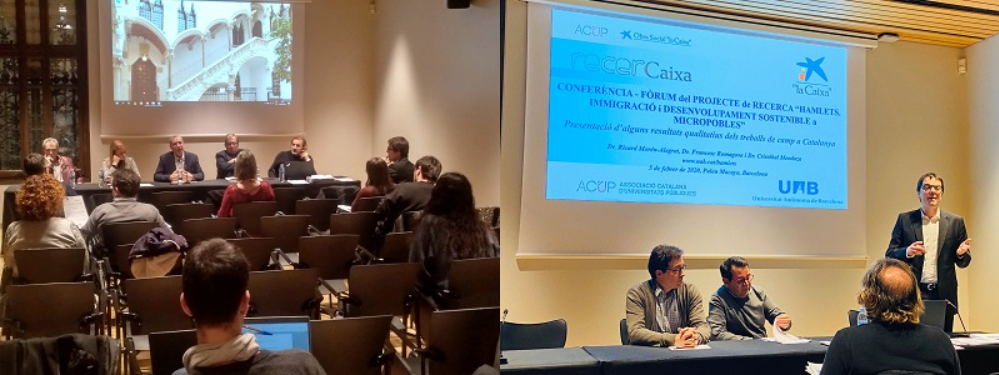
On 9 December 2019 a village forum took place in Tuixent (Josa i Tuixén municipality, Alt Urgell, Lleida Pyrenees, Catalonia, Spain) linked to the project titled “HAMLETS. Immigració i desenvolupament sostenible a micropobles”. Among other activities, there were institutional speeches from the Mayors Marta Poch (Josa i Tuixén) and Josep Camps (La Vansa-Fórnols), Mireia Font (Consorci Leader Alt Urgell Cerdanya), and Mario Urrea (Associació de Micropobles de Catalunya). In addition, the Tuixent school director Mercè Codina, the pedagogical assistant Carme Pablo and some students presented a video about the valley elaborated within the framework of the Investiga amb CosmoCaixa Programme and the HAMLETS research project. Later, Ricard Morén-Alegret and Francesc Romagosa presented there some preliminary results about their study on rural and mountain entrepreneurs. After that presentation, the over 35 persons that actively participated in the event were divided in two groups and interesting debates about the situation in the valley took place in two separete rooms. Finally, the two groups merged again and some comments and questions were shared.
HAMLETS is a research project funded from 2017 to 2020 by the RecerCaixa Programme, an iniciative of Associació Catalana d’Universitats Públiques and Obra Social ‘la Caixa’. Venue: Centre de Flora del Parc Natural del Cadí-Moixeró (Tuixent). Organization: GRM-UAB, with support from Ajuntament de Josa i Tuixén, Ajuntament de La Vansa i Fórnols, Consorci GAL Alt Urgell-Cerdanya, Parc Natural del Cadí-Moixeró, Associació de Micropobles de Catalunya, Asociación Española de Municipios de Montaña (EsMontañas)…
Some news about the forum held in Tuixent:
Television: http://www.pirineustv.cat/2019/12/09/emprenedoria-per-garantir-el-futur-dels-micropobles/
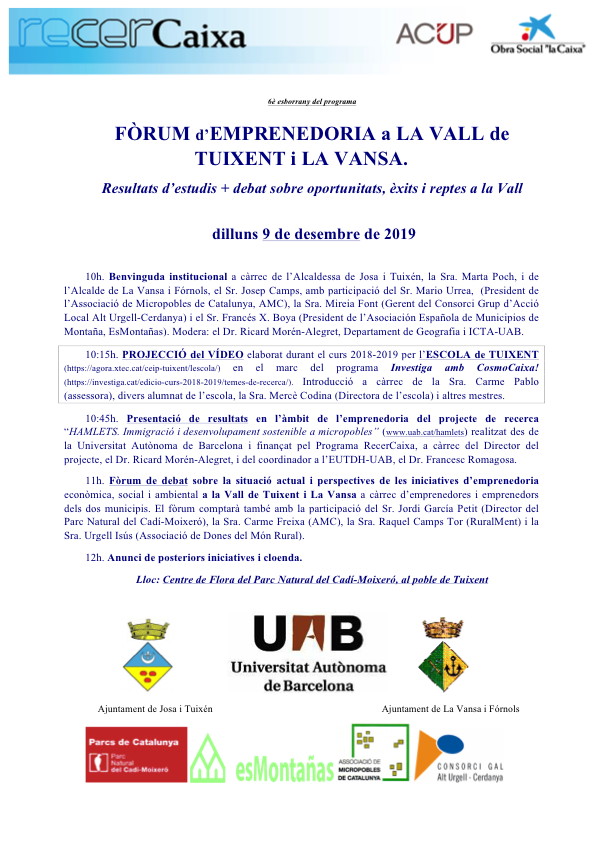
In the second semester of 2019, Palgrave Macmillan has published a new book linked to GRM that is titled “International Immigration, Integration and Sustainability in Small Towns and Villages. Socio-Territorial Challenges in Rural and Semi-Rural Europe” and that is co-authored by Ricard Morén-Alegret (UAB) & Dawid Wladyka (UTRGV). This new book approaches the current migratory situation in Europe, paying special attention to a variety of (relatively) small human population settlements (small towns and villages) as well as taking into account the world debates on sustainable development. In addition, this book presents research results from original fieldworks carried out along several years in various rural areas and small towns of England (UK), France, Portugal and Spain. This book is available both as Hardcover and as eBook.
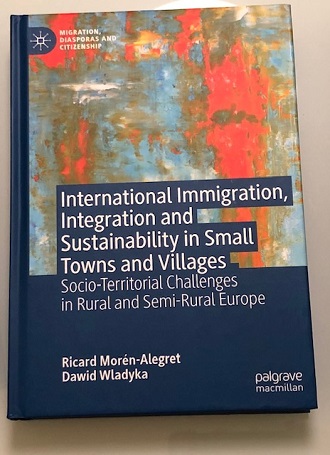
For more information about this book, please see: https://www.palgrave.com/gp/book/9781137586209#aboutBook
The Network of Excellence in Migration Studies (Red de Excelencia de Estudios Migratorios, REsMi), funded by the Spanish Government Ministry for Economy and Competitiveness (ref. CSO2016-81986-REDT), promoted the celebration of the 9th Congress in Migration Studies at the Autonomous University of Barcelona, UAB, from the 4th to the 6th of September 2019. Concretely, this congress was developed under the motto “Borders, Exclusions and Mobilities”, took place on the Bellaterra campus, was organised by UAB-CERmigracions and, among many others, counted with the participation of various persons linked to GRM, e.g. Josepha Milazzo, Cristóbal Mendoza and Ricard Morén-Alegret. The 10th Congress in Migration Studies would take place in Madrid during the year 2022.
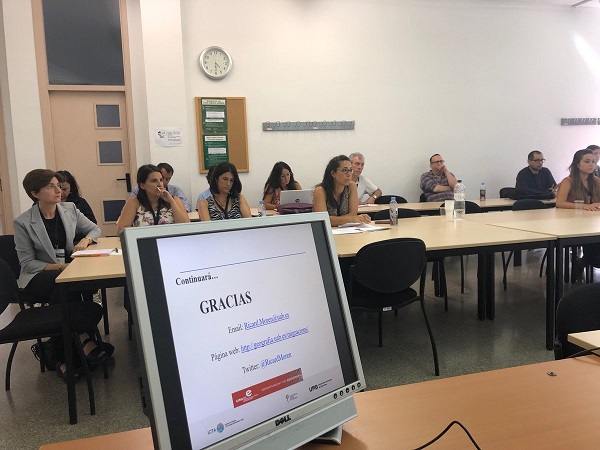
From 26 July 2019 there are two new open calls for covering two temporary Post-Doc posts at the UAB Geography Department. These open calls for candidates are linked to the research project titled“HAMLETS. Immigration and Sustainable Development in Small Villages“. See more information about it in the following Internet links:
26292: https://tauler.seu.cat/pagDetall.do?idEdicte=216084&idens=11 &
26296: https://tauler.seu.cat/pagDetall.do?idEdicte=216086&idens=11
The deadline for sending applications is the 30th of July 2019
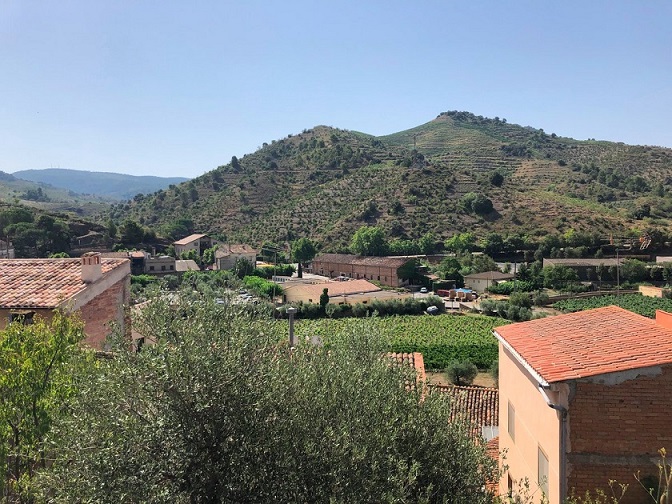
Photo author: @RicardMoren
From 17 July to 20 July 2019 the annual conference of the British Shakespeare Association took place at Swansea University (Wales, UK) under the common words Shakespeare, Race and Nation. Within the framework of that conference several panels, seminars, workshops, plenaries and other encounters took place. Some of them were directly related to migration studies.
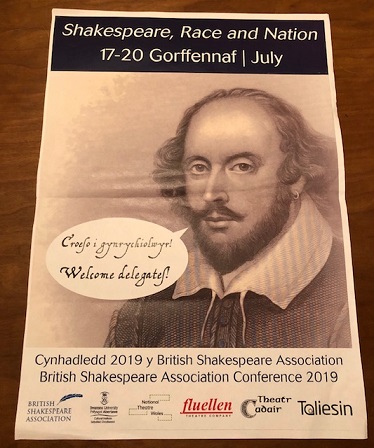
In this sense, the following panel that took place on July 18 and that is related to the GRM research project titled “HAMLETS. Immigration and Sustainable Development in Small Villages” can be mentioned (this project is funded by the RecerCaixa Programme, an initiative promoted by the Association of Public Universities in Catalonia, ACUP, and Obra Social ‘la Caixa’):
Panel: Immigration and Xenophobia (Taliesin Create Mall Room)
❖ ‘“These words are not mine”: Bravura Theatre’s Multilingual Hamlet and the Myth of Canadian Multiculturalism’, Brandon Christopher (University of Winnipeg, Canada)
❖ ‘From the Tragedies of Hamlet to Remedies from All’s Well that Ends Well? William Shakespeare and Immigration Research in Nationalist Times’, Ricard Morén-Alegret (Autonomous University of Barcelona, Spain)
❖ Chair: John Drakakis (University of Stirling, UK)
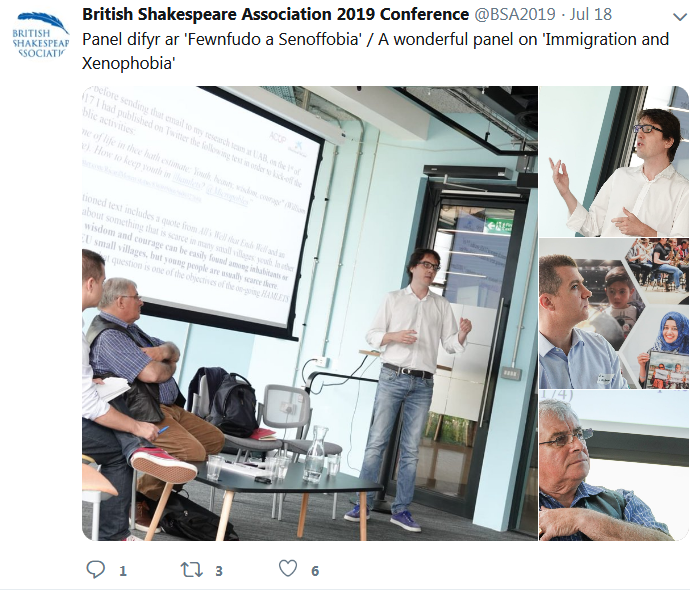
See: http://conference.britishshakespeare.ws/
From 25 June to 28 June 2019 the 28th European Society for Rural Sociology Congress (ESRS2019) took place in Trondheim, Norway. This Congress hosted 30 Working Groups that explored rural futures in Europe. Under the core theme of Rural Futures in a Complex World, three further themes which raise questions for rural studies and which necessarily transcend disciplinary boundaries were identified: 1. Innovation, artificial intelligence and digitisation; 2. Social justice and rural spaces / places; 3. Knowledge production, policymaking and research agendas.
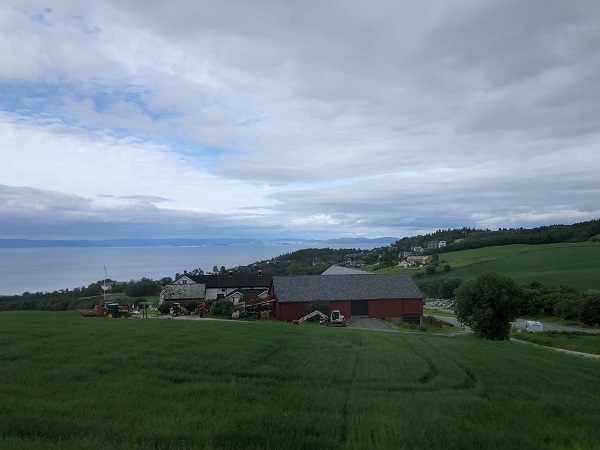
View of Trondheim surrounding area (26June2019). Source: @RicardMoren
Ruth McAreavey (Newcastle University, UK) – who is a GRM collaborator – was the ESRS Scientific Committee Chair and participated in various congress activities there. In addition, among other engagements, on 27 June 2019 Ricard Morén-Alegret (UAB) presented a paper titled “Promoting migration into rural and semi-rural areas? Local government responses to sustainability challenges in small villages of catalonia, Spain”. This presentation was based on original data from the UAB HAMLETS. Immigration and Sustainable Development in Small Villages and took place within a session of Working Group 4 that had Marco Eimermann (Umea University, Sweden) as co-convenor. See: https://esrs2019.no/
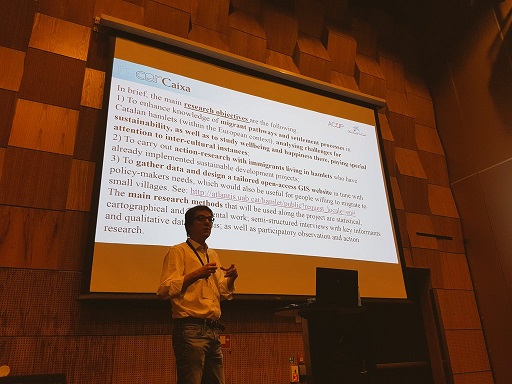
Source: @MarcoEimermann
On 10 and 11 June 2019 an academic seminar with the aim of examining the migration studies research in Spain (“La investigación en Estudios Migratorios en España a “examen” “) took place at the Migration Studies Institute of Universidad de Granada, Spain. This seminar was organised within the framework of the Red de Estudios Migratorios (REsMI), CSO2016-81986-RDT.
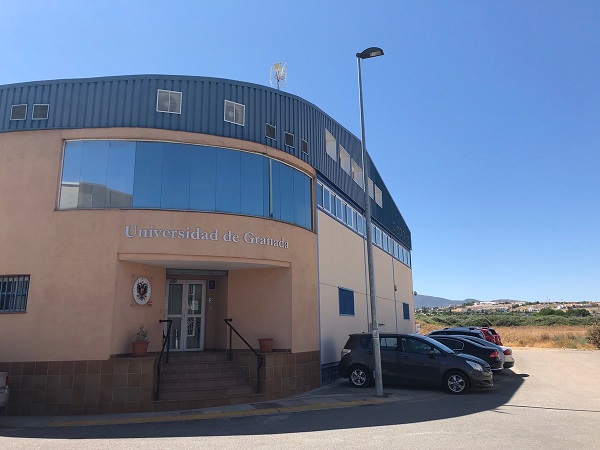
Source: @RicardMoren
Apart from a diversity of PhD students, in that seminar professors and researchers from Universidad de Murcia, Universidad de Córdoba, Universidad de Deusto, Universitat de València, Universidad de Granada, Universidad del País Vasco, CSIC and Universitat Autònoma de Barcelona (UAB) participated in interesting conversations and debates. Concretely, from this university, Ricard Morén-Alegret presented an exploratory paper on the doctoral theses devoted to migration in rural areas that have been defended in Spanish universities from 1980 to 2017.
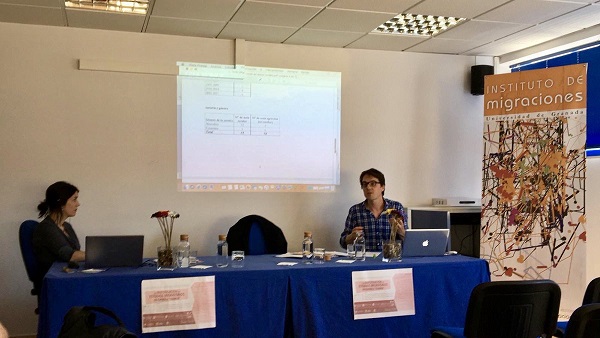
Source: @RESMI_Red
Computer Platform Gives Visibility to Catalonia’s Small Villages within the context of a research project on immigration
A research team from the UAB, in collaboration with the Association of Microvillages of Catalonia, Spain, has created a Geographic Information System (GIS) for Active and Sustainable Hamlets (GISASH), which gathers information on the state of and services offered by the more than 330 municipalities in Catalonia with fewer than 500 inhabitants.
GISASH was developed by members of the Department of Geography, the Institute for Environmental Science and Technology (ICTA) and the Laboratory of Geographic Information and Remote Sensing (LIGIT), all three from the UAB. Also collaborating were the Association of Microvillages of Catalonia and other organisations related to rural issues. The application has been developed as part of the research project “HAMLETS. Immigration and Sustainable Development in Small Villages”, funded by Obra Social “la Caixa” with the collaboration of the Association of Public Universities of Catalonia (ACUP) and directed by Ricard Morén-Alegret.
See GISASH video: https://www.youtube.com/watch?v=BA6Zy9MWJE8&feature=youtu.be
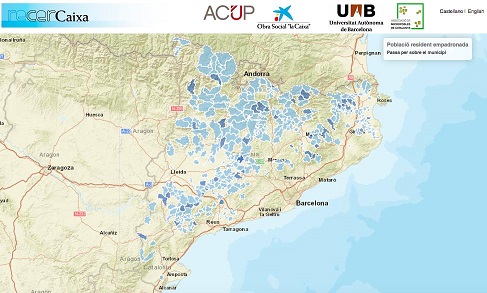
(see the Research section of GRM for more details)
On the 27th of May 2019 the Rural School of Tuixent (Alt Urgell, Lleida Pyrenees) participated in the 6th Young Researchers Congress held in Barcelona’s @CosmoCaixa. This congress is organised by the Association of Public Universities in Catalonia (ACUP) and Obra Social ‘la Caixa’. The Tuixent school project is related to the hamlets research carried out from @Geografia_UAB and @ICTA_UAB with participation of @LIGIT_UAB, @Micropobles and @esMontanas, among other organisations. Several students, Mercè Codina and Albert Martinez (Tuixent school teachers) as well as MªCarme Freixa (president of the Association of Small Villages in Catalonia) and Ricard Morén-Alegret (Director of the hamlets research project, UAB) participated in the event. Among other activities, a video clip and a poster prepared along the 2018-2019 school year were presented there. See: http://www.acup.cat/ca/noticia/mes-de-800-alumnes-de-primaria-presenten-els-seus-resultats-de-recerca-en-el-6e-congres & https://agora.xtec.cat/ceip-tuixent/portada/congres-de-joves-investigadors/
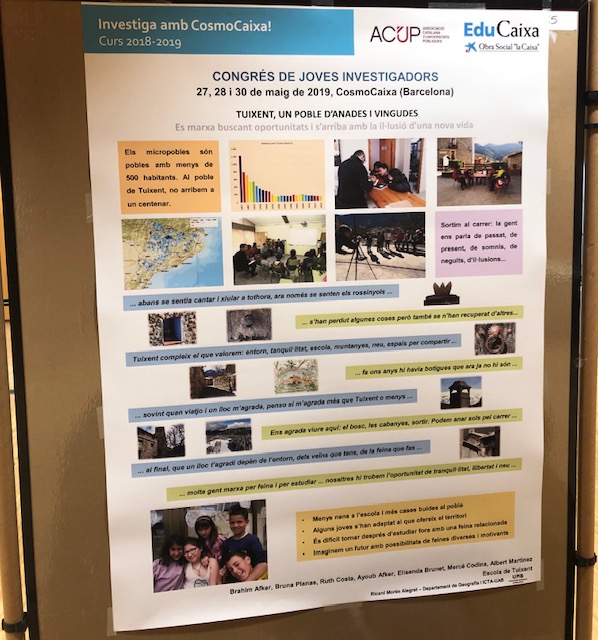
On the 23rd of May 2019 from 7pm to 8pm a monographic radio programme on human depopulation and repopulation in European rural areas took place on the public radio station CATALUNYA INFORMACIÓ. This program was conducted by journalist Gloria Marín and included the participation of Núria Albà, Associació de Micropobles de Catalunya; Joan Caball, coordinador d’Unió de Pagesos; and geographer Ricard Morén-Alegret (UAB). The audio file of that program and additional details can be found in the following links: https://www.ccma.cat/catradio/alacarta/catalunya-al-dia/associacio-de-micropobles-frenar-el-despoblament-es-una-questio-de-pais/audio/1040519/ & https://twitter.com/Catinformacio/status/1131802004815339520
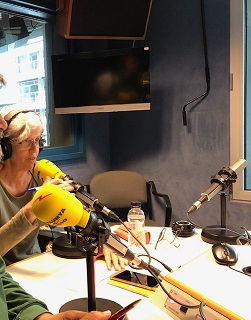
On 22 and 23 May 2019 several debates on initiatives and “dispositives” of population settlement in rural (and semi-rural) areas took place in Poitiers, the French town where philosopher Michel Foucault was born (among others, he developed the concept “dispositif”). These debates were held within the framework of workhops organised by CAMIGRI research project at MSHS, Poitiers University campus. Among others, some researchers linked to GRM participated there: William Berthomière (CNRS) presented a paper on the immigrant situation in the Pyrénées Ariégeoises (France), Josepha Milazzo (AMU) presented a paper on “À dispositif in/égal…” in relation to the situation in a village of Empordà (Catalonia, Spain) and Ricard Morén-Alegret (UAB) presented a paper based on the HAMLETS research project, paying attention to sustainability challenges in various small villages of different regions in Catalonia (Spain). See: http://icmigrations.fr/2019/05/22/journee-detude-camigri-dispositifs-et-initiatives-dinstallation-de-personnes-en-migration-dans-les-campagnes-22-23-mai-2019-mshs-poitiers/
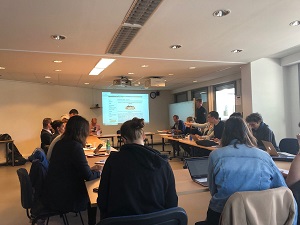
Photo: @RicardMoren
From February to May 2019 GALERIA de RECERCA sobre MIGRACIONS, GRM presented the 17th GRM Annual Seminar Series on Migration (Department of Geography & ICTA, Autonomous University of Barcelona, UAB-GEO-GRM). The 2019 Programme was composed by the following sessions:
28 February 2019, 13h, Cristóbal Mendoza, UAM, Mexico:
Fragmented labour markets and international migration dynamics: High-skilled immigration and low-qualified emigration in Mexico?
7 March 2019, 13h, Daniela del Bene, ICTA:
Exploring forced displacements and involuntary migrations in environmental conflicts
12 March 2019, 13h, Júlia Pírez, FAS:
The key role of universities and the ‘refugee crisis’: The refugees hosting program at UAB (Programa Acollida)
9 May 2019, 13h, William Berthomière, CNRS, France:
Small villages in France: diversity and international immigration
All sessions were open to the public and took place at the Arts & Humanities Faculty (Facultat de Filosofia i Lletres) of Universitat Autònoma de Barcelona, UAB. This faculty is located in Bellaterra campus (see: https://www.uab.cat/web/accessibility/how-to-get-to-the-campus-1273127180017.html).
These seminars were held within the framework of the ECONECOL Research Group (SGR2017-2020, AGAUR),the HAMLETS research project (funded by RercerCaixa, a program promoted by ACUP & Obra Social “La Caixa”; see: www.uab.cat/hamlets), the UAB Doctoral Studies Programme in Geography as well as the REsMi Network (see: http://resmi.ugr.es), and were coordinated by Dr Ricard Morén-Alegret.
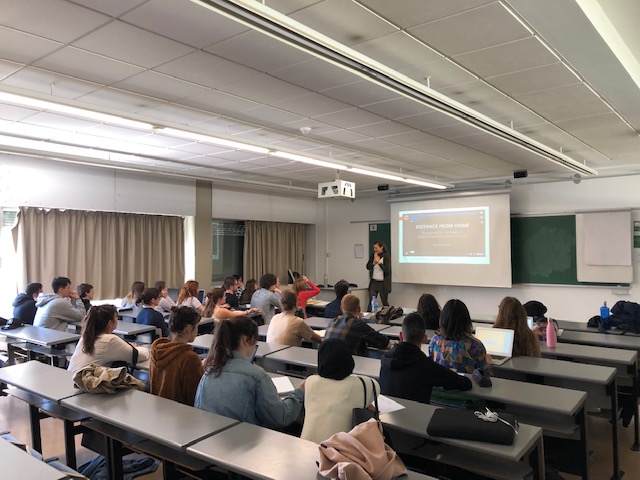
Photo: Ricard Morén, 7 March 2019
On 15 April 2019 the research project titled HAMLETS. Immigration and Sustainable Development in Small Villages (funded by the RecerCaixa Programme and carried out mainly from UAB) participated in a round table on rural depopulation and repopulation that took place during the first hour of the “De Boca a Orella” radio program of Radio 4, the radio station in Catalonia of the Spanish National Radio corporation, i.e. Radio Nacional de España (RNE). Various relevant actors of rural Catalonia participated in the debate. If you want to listen to that radio program, you can click the following link: http://www.rtve.es/alacarta/audios/de-boca-a-orella/boca-orella-dilluns-15-dabril-2019-1a-hora/5146318/
For more information, please pay also attention to Twitter activity about it, for instance:
https://twitter.com/Micropobles/status/1118899278703939584https://twitter.com/debocaaorella/status/1117796234289471489 https://twitter.com/RicardMoren/status/1118049397466701824
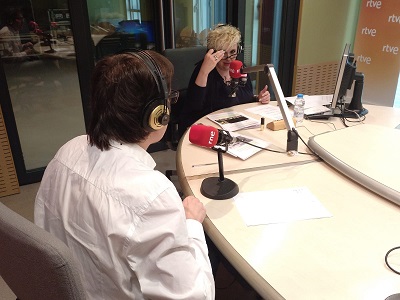
Photo: Radio 4
On the 7th of April 2019, Josepha Milazzo presented in Washington DC, USA, the paper titled The contributions of presence to understand the geographical approach of living. Migration and experiences in Cadaqués (Catalonia, Spain). This presentation takes place within the framework of the American Association of Geographers Annual Meeting and it is one of the outcomes of Josepha Milazzo’s PhD thesis (2010-2018). That thesis was co-directed by Virginie Baby-Collin (Aix-Marseille Université) and Ricard Morén-Alegret (UAB) thanks to an international academic partnership. See: https://telemme.mmsh.univ-aix.fr/membres/Josepha_Milazzo

Photo: Josepha Milazzo
In early April 2019, we welcome at @UABBarcelona & GRM @Geografia_UAB two new members of the #HAMLETS Research Project (www.uab.es/hamlets): Cristóbal Mendoza (@UabMendoza) & Laia Mojica (@LaiaMojica).
“Welcome shall they be; / And all the honours that can fly from us / Shall on them settle” #WilliamShakespeare, All’s Well That Ends Well
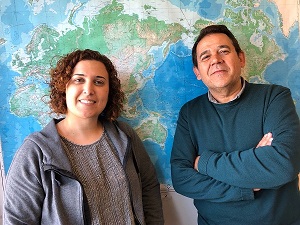
Photo: @RicardMoren
On 10 March 2019, within the framework of the 3th Convention of Small Villages in Catalonia (Spain), the Geographical Information System for Active and Sustainable Hamlets, GISASH was publicly presented in Copons municipality (Anoia, Barcelona). This is an open access tool that is the outcome of the research project titled HAMLETS. Immmigration and Sustainable Development in Small Villages (2017-2020), see: www.uab.cat/hamlets. This project is funded by the RecerCaixa Program, an iniciative promoted by Obra Social ‘la Caixa’ and the Catalan Association of Public Universities, ACUP. The HAMLETS research project is carried out from UAB and it is directed by Ricard Morén-Alegret with participation of the Geography Department, LIGIT and ICTA.
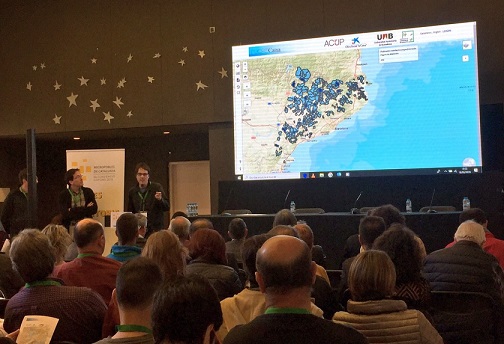
Foto: Eva Gómez
In January 2019, the lists of candidates that have been admitted/excluded in order to be assessed regarding the two recent calls for temporary staff (linked to the HAMLETS research project) have been published by UAB. Please, see:
https://tauler.seu.cat/pagDetall.do?idEdicte=187283&idens=11
&
https://tauler.seu.cat/pagDetall.do?idEdicte=187520&idens=11
2nd call (job offer) from #HAMLETS Research Project [see: http://uab.cat/hamlets]:
Temporary research support staff (part time position) at @UABBarcelona, funded by @RecerCaixa, @ACUPcatalunya & @FundlaCaixa.
See details: https://tauler.seu.cat/pagDetall.do?idEdicte=183351&idens=11
Deadline for submitting applications:
18 December 2018
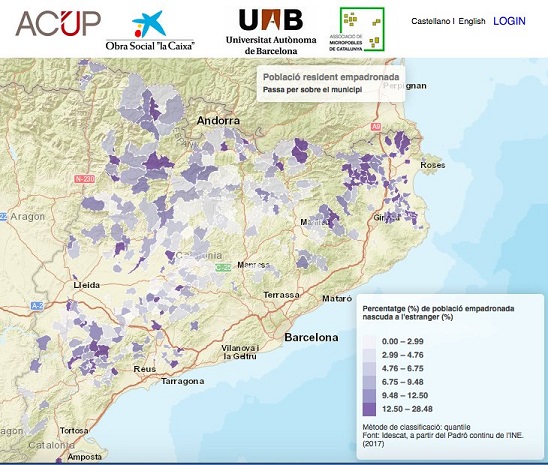
On 10 December 2018, at 3pm, in ICTA-UAB, Anthony Liew publicly defends his thesis titled “Refugees in Cities. Approaches to Urban Environmental Management in Turkey“.
This thesis has been written within the framework of the Joint European Masters in Environmental Science-Cities and Sustainability, JEMES-CISU, with the co-supervision of Giorgos Kallis, Peter Roebling and Ricard Morén-Alegret.

On the 6th of Decembre 2018, at 2pm, in the Maison Méditerranéenne des Sciences de l’Homme (Duby room) of Aix-en-Provence (France), Josepha Milazzo excellently defended her thesis titled Living in a global village. Migrations and experiences in Cadaqués (Catalonia, Spain). The defence took place in order to obtain a PhD in Geography at Aix-Marseille Université, AMU, and at UAB (please, see an abstract in the following link: https://telemme.mmsh.univ-aix.fr/membres/Josepha_Milazzo). The thesis was co-directed by Virginie Baby-Collin (AMU) and Ricard Morén-Alegret (UAB) within the framework of an international co-supervision agreement (2010-2018).
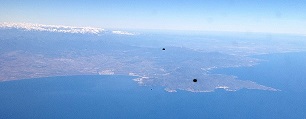
New call from #HAMLETS Research Project
(see: http://uab.cat/hamlets):
Temporary academic job offer (part time Post-Doc position) at @UABBarcelona, funded by @RecerCaixa, @ACUPcatalunya & @FundlaCaixa.
See details: https://tauler.seu.cat/pagDetall.do?idEdicte=181548&idens=11
Deadline for submitting applications: 5 December 2018
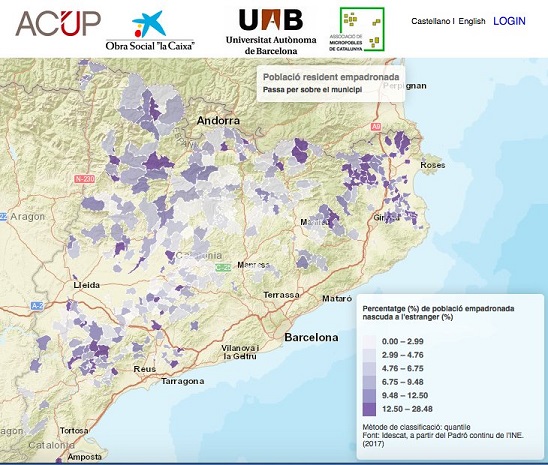
On 15 November 2018 the #HAMLETS Research Project ( http://uab.cat/hamlets ) was presented in #TUIXENT #ruralSchool by Carme Freixa (president of Association of Small Villages in Catalonia) and Ricard Morén-Alegret (HAMLETS project director). This is an activity that took place within the #RESEARCH with @CosmoCaixa Program, promoted by @ACUPcatalunya & @EduCaixa.
After seeing great paintings, brainstorming meetings took place during an inspiring stormy day in order to prepare the next steps of the on-going collaboration.
See: https://agora.xtec.cat/ceip-tuixent/portada/visita-dun-investigador/ and
https://twitter.com/Geografia_UAB/status/1068182599397453824
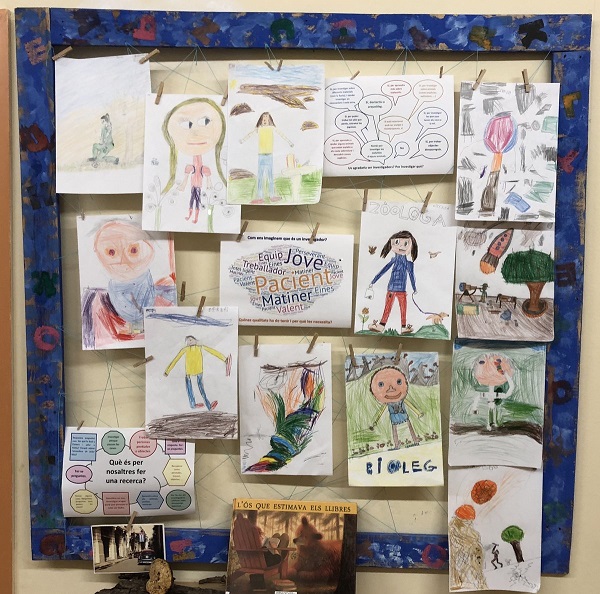
On 24 October 2018 the first meeting of RESEARCH with @CosmoCaixa! Program was organised in Barcelona by @ACUPcatalunya and @EduCaixa. Various researchers participated there, including some from @UABBarcelona, @Geografia_UAB, @ICTA_UAB and GRM. This 2018-2019 academic year, the research project titled “HAMLETS. Immigration and Sustainable Development in Small villages“ is one of the selected projects (see: www.uab.cat/hamlets), and researchers would collaborate with a rural small village school. Concretely, the partner school would be placed in the Pyrenees, in Lleida province (Catalonia, Spain). See more details and photos about it on Twitter: https://twitter.com/RicardMoren/status/1055205685384888320
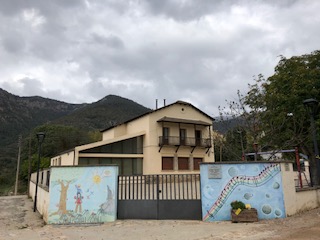

On 11 October 2018, Ryan Alaniz, assistant professor at California Polytechnic State University (USA), visited the UAB Geography Department invited by GRM, following an initiative promoted by Kees Van der Geest from the United Nations University, UNU (see: https://twitter.com/RicardMoren/status/1050450205852753924). During that day, there were conversations about possible future international research projects and about his recent book titled From Strangers to Neighbors: Resettlement and Recovery in Post-Disaster Honduras and published by University of Texas Press in 2017. Dr. Alaniz donated a copy of that book to the UAB Humanities Library and another one to the Geography Department, see: https://cataleg.uab.cat/iii/encore/record/C__Rb2035438?lang=cat


In July 2018, the 15th IMISCOE annual conference took place in Barcelona (UPF) with the following central theme: Europe, migrations and the Mediterranean: human mobilities and intercultural challenges. Among other sessions, within the framework of that international gathering, a panel titled New Immigration Destinations and linked to GRM was organised. Pawel Kaczmarczy, Ruth McAreavey & Agata Gorny were the chairs of that session, which included the following participants and topics:
*Ruth McAreavey (Newcastle University) & Neil Argent (University of New England): Migrant integration in rural New Immigration Destinations: an institutional and triangular perspective.
*Agata Gorny (University of Warsaw) & Pawel Kaczmarczyk (University of Warsaw): A temporary solution with structural consequences? Ukrainian workers on the Polish labour market.
*Jorge Malheiros, Alina Esteves, Ana Estevens, Luis Moreno & Sonia Pereira (University of Lisbon): The return of the immigration dynamics to Portugal: new origins and new regional destinations?
*Yana Leontiyeva (Czech Academy of Sciences): Metropolis For All. Migrants Integration Policies and Practices.
*Ricard Morén-Alegret (Autonomous University of Barcelona / Universitat Autònoma de Barcelona, UAB): Immigration and sustainable development in small villages of Catalonia, Spain.
In late May 2018 the international article titled “Challenges in achieving sustainability in Iberian rural areas and small towns: Exploring immigrant stakeholders’ perceptions in Alentejo, Portugal, and Empordà, Spain” was published in the Journal of Rural Studies [Impact Factor: 2.380. 5-Year Impact Factor: 3.379 (2017 Journal Citation Report)]. This article is co-authored by Ricard Morén-Alegret (UAB), Sandra Fatoric (North Carolina State University, USA), Dawid Wladyka (University of Texas Rio Grande Valley, USA), Albert Mas-Palacios (UEC, Spain) and Maria Lucinda Fonseca (University of Lisbon, Portugal). DOI information: 10.1016/j.jrurstud.2018.05.005. Highlights:
- International immigration is becoming increasingly influential in peripheral areas in some Southern European countries.
- Alentejo Litoral (Portugal) and Empordà (Spain) are instances of dynamic rural areas attracting international immigration.
- In small localities, where keeping population is vital for sustainability, attracting and retaining immigration is crucial.
- Immigrants living in small towns and rural areas include a variety of profiles, at socio-economic and at nationality levels.
- The main findings show how Northwest European immigrants stress environmental challenges for sustainability more than the rest.
See: https://www.sciencedirect.com/science/article/pii/S074301671731210X
In April 2018, a book titled Processes of Immigration in Rural Europe. The Status Quo, Implications and Development Strategies and co-edited by Stefan Kordel, Tobias Weidinder i Igor Jelen was published by Cambridge Scholars. This is an academic book including 15 chapters studying various places and topics. This book has been written by dozens of researchers from a wide variety of countries.
Among others, this book included a chapter linked to GRM and titled: “Immigrants’ Integration Challenges and Sustainability in Stratford-upon-Avon: Perceptions and Experiences from a ‘Global’ Small Town in Nationalistic Times“. This book chapter is co-authored by Ricard Morén-Alegret, Dawid Wladyka and David Owen.
See: http://www.cambridgescholars.com/download/sample/64438
In April and May 2018 GALERIA de RECERCA sobre MIGRACIONS, GRM, organised the 16th GRM Annual Seminar Series on Migration UAB-GEO-GRM at the Autonomous University of Barcelona, UAB.
Concretely, on 24 April 2018, 11:30am, Michele Nori, from the European University Institute (Italy), offered a presentation titled Living with uncertainty – learning from pastoralists.
In addition, on 24 May 2018, 11:30am, Anthony Liew (ICTA-UAB), offered a presentation titled Forced Migration: The Ecological Burden of Hosting Refugees?.
Finally, on 29 May 2018, 11:30am, Ruth McAreavey, from Newcastle University (UK), offered a presentation titled The Integration of Migrants in Peripheral and Rural Regions: A Case Study of Northern Ireland.
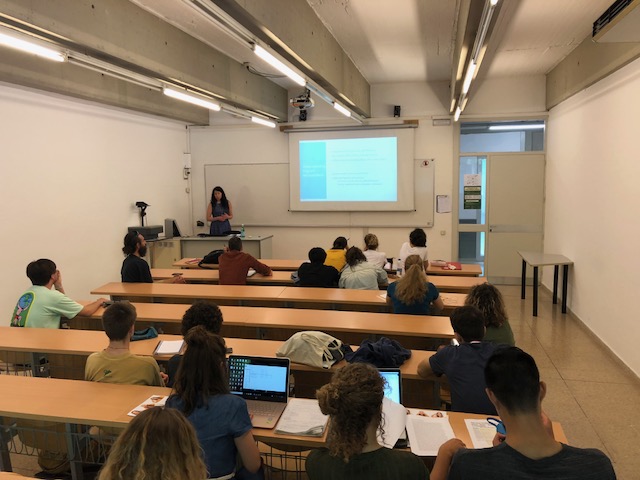
All sessions were open to the public and took place in Aula 301 at the UAB’s Arts & Humanities Faculty (Facultat de Filosofia i Lletres) , located in Bellaterra campus.
These seminars were held within the framework of the HAMLETS research project (funded by RercerCaixa, a program promoted by ACUP & Obra Social “La Caixa”; see: www.uab.cat/hamlets), the ECONECOL Research Group (SGR2017-2019, AGAUR), the UAB Doctoral Studies Programme in Geography as well as the REsMi Network (see: http://resmi.ugr.es), and are coordinated by Dr Ricard Morén-Alegret.


Since January 2018 the website of Red de Estudios Migratorios (REsMi) / Network of Migratory Studies is already available on-line. It is coordinated from University of Granada and it will mainly publish information related to the REsMi partners located in several universities of Spain. This network includes, among other participants, GRM-GEO-UAB; see: http://resmi.ugr.es/. Additionally, a Twitter account has also been published: @Resmi_Red
Issue 15, December 2017, of the electronic journal e-Migrinter has been published and it is available as open access publication. That is a special issue titled “Migrinter a trente ans : analyses et portraits“ and mainly devoted to celebrate 30 years of academic life of the aformentioned laboratory (Migrinter, Université de Poitiers / CNRS, France). This lab is focused on research in human migration. Within the framework of that special issue, one can find, among other texts, a brief review article titled “Présentation du « Réseau Migrations »” co-authored by Josepha Milazzo (TELEMME-AMU & GRM-UAB), Jordan Pinel (Migrinter-U.Poitiers/CNRS) & Ewa Tartakowsky (Centre Max Weber). See: http://journals.openedition.org/e-migrinter/831
On 23 November 2017 took place in Madrid the kick-off meeting of the TransMENA Research project on Transnational Dynamics and Actors in the Middle East and North Africa, MENA (funded by MINECO, 2017-2020). This project involves over 20 researchers based in universities placed in four continents and is coordinated from UAB by Laura Feliu & Ferran Izquierdo, with participation among others of Ricard Morén-Alegret. That same day some preliminary data, reflections and maps – that are also linked to the research project titled HAMLETS. Immigration and Sustainable Development in Small Villages (see: www.uab.es/hamlets) – were presented by Ricard Morén-Alegret in the 20th FIMAM annual congress, which was held at @CasaArabe, Madrid. Among others, the following map (elaborated in collaboration with LIGIT-UAB) was presented. In this map, residents born in Morocco are located in the 336 municipalities of Catalonia with less than 500 inhabitants (INE, 2016). Among the aforementioned 336 municipalities, 9 of the top 10 with more population born in Morocco are placed in southern areas of Catalonia, in Lleida and Tarragona provinces:
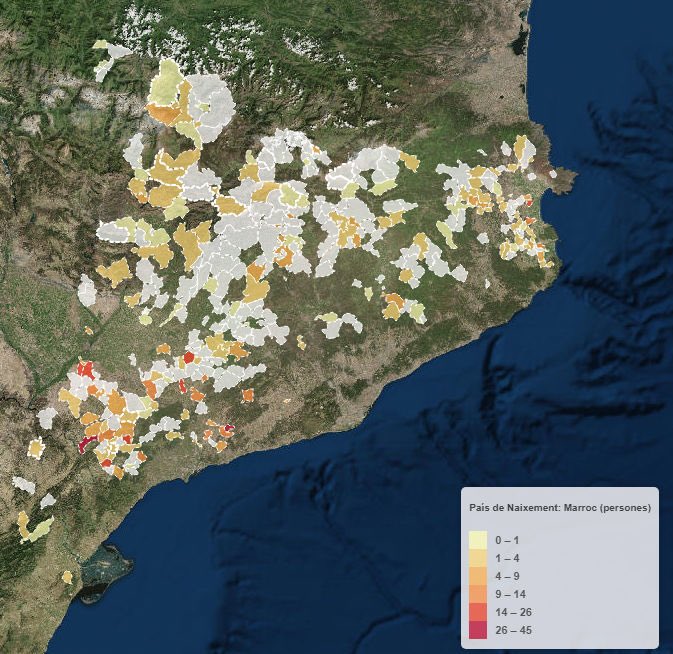
On 13 November 2017, Ruth McAreavy organised a research seminar at Newcastle University (Sociology Seminar Series, in conjunction with the Centre for Rural Economy and the Cultural Significance of Place Research Group) where Ricard Morén-Alegret presented some preliminary data and maps regarding the research project “HAMLETS. Immigration and Sustainable Development in Small Villages” (see: www.uab.es/hamlets). Among others, the following map (elaborated in collaboration with @LIGIT_UAB) on residents born in the UK who are located in the 336 Catalan municipalities with less than 500 inhabitants (INE, 2016) was presented and their geographical distribution was commented, e.g. among the aforementioned municipalities, 7 of the top 10 municipalities with more registered residents born in the UK are placed in Girona province (only 2 in Tarragona province, 1 in Barcelona province and none in Lleida province):
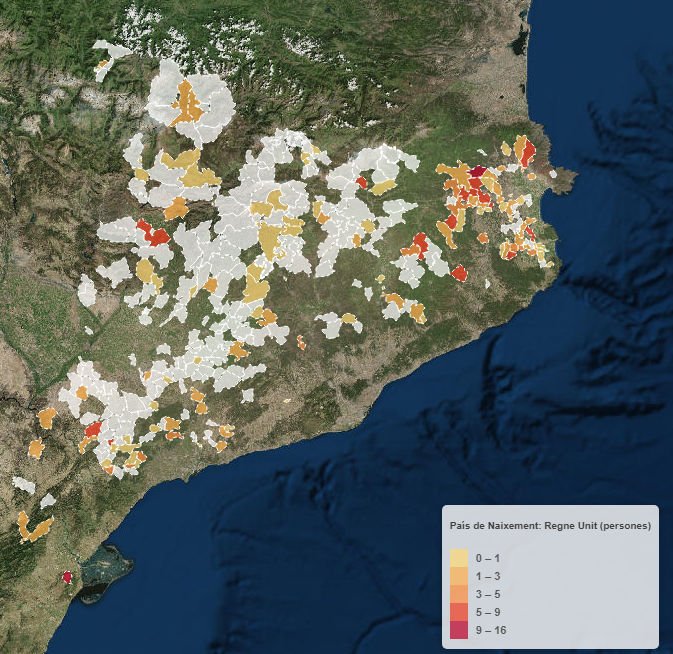
In November 2017 Springer International Publishing has published the Handbook of Sustainability and Social Science Research, edited by Walter Leal Filho, Robert W. Marans & John Callewaert. Among others, this book includes a chapter that is titled: “A Sustainable Touristic Place in Times of Crisis? The Case of Empuriabrava-A Superdiverse Mediterranean Resort” (pp. 263-281). This chapter is co-authored by Dawid Wladyka & Ricard Morén-Alegret.
In October 2017 the presential activity of the Migration Studies Network / Red de Estudios Migratorios (REsMi) kicks off in Madrid. This is one of the 2016 Networks of Excellence funded by MINECO and its coordination is based at Universidad de Granada. In this network, a dozen professors and researchers who are based at Universitat de València, Universidad Complutense de Madrid, Universitat Pompeu Fabra, Universidad de Almería, Universidade da Coruña and Universitat Autònoma de Barcelona participate as members, including Ricard Morén-Alegret among others.
Since late July 2017 the website of the research project titled “HAMLETS. Immigration and Sustainable Development in Small Villages‘“ is available on-line also in 3 languages (English, Spanish and Catalan): www.uab.cat/hamlets . The HAMLETS project is linked to GRM and directed by Ricard Morén-Alegret. That website will also be the portal of the Geographical Information System for Active & Sustainable Hamlets, GISASH, which is one of the forecasted fruits of the aforementioned project and that is being developed from LIGIT-UAB in coordination with colleagues at UAB Geography Department, ICTA-UAB, Associació de Micropobles de Catalunya…
Since June 2017, within the framework of the applied research project titled ‘HAMLETS. Immigration and Sustainable Development in Small Villages‘ , a number of popular science tweets are being published on Twitter, mainly in English. These tweets offer geo-demographic data and photographies taken in municipalities with less than 500 inhabitants (336 municipalities in Catalonia, according to MUNICAT for 2016). These are photos taken in situ by researchers during fieldwork, showing a variety of aspects regarding social, cultural, economical, polítical or natural life in villages. Later these pictures will be linked to a Geographical Information System named GISASH that is being developed from LIGIT-UAB (during the next months, GISASH will be available on-line). In this sense, those tweets are being already linked to other tweets published from LIGIT offering land use evolution data and maps in small villages (CORINE Land Cover 1990-2012). The usual periodicity is various tweets per week. The main hashtag is #HAMLETS and two twitter accounts that can be followed for updates during the project are: on the one hand, @LIGIT_UAB and, on the other hand, @RicardMoren . The project HAMLETS was selected in the call for proposals RecerCaixa 2016 (promoted by Obra Social de ‘la Caixa’ with the collaboration of the Catalan Association of Public Universities, ACUP), it is developed from UAB with support from an association of local governments (Associació de Micropobles de Catalunya) and it is directed by Ricard Morén-Alegret.
On 5 July 2017 a session on migration in rural areas of the European Union and North America took place at UAB within the framework of the 14th International Comparative Rural Policy Studies (ICRPS) Summer Institute. The institute convenes for two weeks and involves approximately 30 graduate students and numerous faculty members from universities placed in various continents. The ICRPS 2017 has been organised from the UAB Economy and Business Faculty. The session on migration in rural areas was was coordinated by Philomena De Lima (University of the Highlands and Islands, Scotland, UK) and Ricard Morén-Alegret (UAB). In this session, a variety of speakers participated, including Lídia Carvajal (UAEM, Mexico), William Ashton (Brandon University, Canada), Maria Crehuet and Mª Carme Freixa (Associació of Micropobles de Catalunya) as well as Neus Monllor (Universitat de Girona).
In late May 2017 the paper titled “Sustainable Touristic Place in Times of Crisis? The Case of Empuriabrava – a Superdiverse Mediterranean Resort” was presented at Michigan University, USA, within the framework of the SUSTAINABILITY AND SOCIAL SCIENCE RESEARCH SYMPOSIUM. That paper is co-authored by Dawid Wladyka (University of Texas Rio Grande Valley) and Ricard Morén-Alegret (Autonomous University of Barcelona). Abstract: “Empuriabrava is a cosmopolitan neighborhood located in Costa Brava and one of the world’s largest residential marinas. About sixty-five percent of Empuriabrava’s population are foreign residents from dozens of nationalities. Their profile constitutes an intersection of religions, languages, socio-economic statuses, and migratory histories. Previous research rooted in conflict and contact theories as well as studies based on the superdiversity paradigm underscored the contradictory effect that diversity may have on the sustainable development of local communities. This paper analyzes Empuriabrava’s population daily life and community sustainability. The analysis is based on interviews with local key informants, both natives and immigrants, as well as analysis of statistical and documental sources. The results suggest that while superdiversity provides vast possibilities to empower sustainable development, a perceived lack of local authorities’ involvement diminishes this positive effect. The economic downturn has been observed as enhancing conflict and limiting collaborative initiatives. However, the efficient management of superdiversity in tourism–oriented neighborhoods has been found to be a key asset, which may help to experience rejuvenation instead of decline in the resort life cycle model. In this sense, this paper shows practical sustainability lessons to be learnt from Empuriabrava recent history and present situation”. (Source: http://graham.umich.edu/events/sustainability-social-science-research)
The 15th GRM Annual Seminar Series on Migration
[Department of Geography, Autonomous University of Barcelona, UAB/GEO/GRM]
took place during May 2017 with the following
Programme:
9 May 2017, 11:30h. Josepha Milazzo, Aix-Marseille Université:
Lugar, inmigración y geografía de una ‘aldea’ global. El caso de Cadaqués
18 May 2017, 11:30h. Natàlia Ribas-Mateos, Trans-MENA:
Migracions, Mobilitats i la Primavera Àrab. Ressorgiment del dret a tenir drets a les fronteres?
23 May 2017, 11:30h. Àlex Cubells, Geografia UAB:
El comerç paquistanès a Barcelona. Explorant el cas del barri de Camp de l’Arpa
All sessions were open to the public and took place in Aula 101 at the Philosophy & Arts Faculty (Facultat de Filosofia i Lletres) of Universitat Autònoma de Barcelona, UAB, located in Bellaterra campus.
*Seats were available on a first-come, first-served, basis.
**Before attending a seminar, outside visitors were advised to check the website webs.uab.cat/migracions to confirm details and to take into account last minute changes.
*** The language used by the speaker in each seminar is indicated in the respective titles.
*** These seminars were held within the framework of the Trans-MENA project (MINECO 2017-2019), the UAB Doctoral Studies Programme on Geography and the Migration Research Programme of Grup de Recerca Consolidat Interfase (SGR2014-2017, AGAUR). This seminar series have been awarded by the Dean of the UAB Philosophy & Arts Faculty and was coordinated by Dr. Ricard Morén-Alegret.

On February 2017, the research project titled ‘“HAMLETS. Immigration and sustainable development in small villages‘” was selected in the open call for proposals RecerCaixa 2016 , promoted by Obra Social ‘la Caixa’ and Association of Catalan Public Universities, ACUP (among 205 proposals, 18 projects were selected for funding). In English, hamlet means small village and, at the same time, Hamlet is the main character of an existential tragedy written by William Shakespeare. This project explores the human geography, the sustainability dynamics and the ‘to be or not to be’ debate of small villages (i.e. municipalities with less than 500 inhabitants). In Catalonia, the area covered by hamlets is more than a third of the territory, but less than 2% of the Catalan population reside in these small villages. This is a project carried out in collaboration with Associació de Micropobles de Catalunya (with its president Mª Carme Freixa upfront), but that has been granted to UAB, with Ricard Morén-Alegret as Principal Investigator and various participants based at ICTA, LIGIT, IERMB, DdG and GRM as well as Newcastle University, UK. The duration of the project is 2 years (minimum) and it is focused on Catalonia, within the European context (some tasks will be carried out in France, the UK and the Republic of Ireland, Eire).
Recently, Dawid Wladyka collaborated with the project “Trafficking in Persons in Central America and along Mexico’s Eastern Migration Routes: The Role of Transnational Criminal Organizations“. The project lasted 18 months and was directed by Guadalupe Correa-Cabrera at the University of Texas Rio Grande Valley. It was financially supported by the Office to Monitor and Combat Trafficking in Persons of the U.S. Department of State. The first results of the project, including maps and photos, are available at the following website: http://www.utrgv.edu/human-trafficking/index.htm
This winter (in the Northern hemisphere) 2016-2017 an article titled “Living with climate change risks: stakeholders’ employment and coastal relocation in mediterranean climate regions of Australia and Spain” has been published in the journal Environment Systems and Decisions. This article is the outcome of an inter-continental collaboration, pays an international homage to the late Professor Graeme Hugo and is co-authored by Sandra Fatoric, Ricard Morén-Alegret, Rhiannon J. Niven & George Tuan. DOI: 10.1007/s10669-017-9629-6.
The book titled Inter-group Relations and Migrant Integration in European Cities and edited by Ferruccio Pastore & Irene Ponzo (2016) is already available (and can be downloaded as PDF) in the open access platform Springer Open: http://link.springer.com/book/10.1007%2F978-3-319-23096-2. with This book includes chapters on London, Budapest, Turin, Nuremberg and Barcelona. The latter one is authored by Ricard Morén-Alegret, Albert Mas & Dawid Wladyka.
On 22 November 2016 took place at Universidad Carlos III of Madrid (Spain) the Symposium on Climate Migration, organized by Ecodes. Among the invited speakers who came from various countries and were linked to academic, environmental, social, political, economic and media institutions – there was Ricard Morén-Alegret. His contribution was offered within the session titled “Definition and dimension of the phenomenon”. For more information and details, please see: https://migracionesclimaticas.org .
From mid September to mid December 2016, Ricard Morén-Alegret is carrying out several fieldworks on immigration in rural areas and small towns in Provence and Roussillon (France). These actions take place within the framework of a research visit to TELEMME laboratory, Aix-Marseille Université (http://telemme.mmsh.univ-aix.fr), where he was invited.

During June 2016, a special issue of the international academic journal e-migrinter titled “L’ajustement méthodologique comme fabrique critique du savoir dans les études migratoires” has been published. It has been co-edited by Mike Gadras (U. Paris XIII) and Josepha Milazzo (AMU & UAB). This publication includes over a dozen of fresh artiles on the study of human migration written from a variety of social sciences: “Ce numéro d’e-Migrinter donne suite au séminaire des doctorants du laboratoire Migrinter des 23 et 24 Juin 2014 intitulé : « nouvelles migrations, nouveaux concepts, nouvelles méthodes – vers une réflexion critique sur l’enthousiasme pour la nouveauté dans le champ des migrations ». Les contributions réunies dans ce dossier permettent d’appréhender un souci similaire de distanciation par rapport aux cadres méthodologiques pour mieux s’y confronter, les tester, s’en rapprocher, les « réajuster », et ce en fonction de terrains de recherche qui s’inscrivent résolument dans une démarche inductive” (see: http://e-migrinter.revues.org/676).
During May 2016 Ricard Morén-Alegret participated as invited speaker in two international academic gatherings held abroad: on the one hand, a transatlantic workshop titled “Exploring and identifying barriers to migrants’ opportunities in the labour market”. This event took place in Belfast, Northern Ireland, on 17 and 18 May. It was organised by the Queen’s University Belfast and MICaRD, a international regional studies network. Ricard Morén’s presentation was titled Conceptualising new migration patterns to small towns and rural areas.
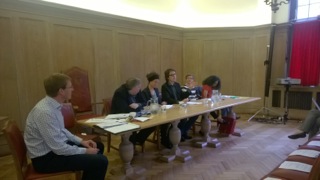
On the other hand, Ricard Morén-Alegret also participated in a European workshop on “New Migration Processes and Development in Peripheral Areas” that took place on 2 and 3 May 2016 in Gorizia (Italy), a town that is part of an international conurbation with Nova Gorica (Eslovenia). That workshop was organized by Università di Trieste (Italy) and Friedrich-Alexander Universität Erlangen-Nürnberg (Germany). Ricard Morén’s presentation was titled: International immigration in small human settlements: reflections on ruralphilia/ruralphobia and urbophilia/urbophobia.
From February to May 2016 five sessions of the 14th GRM Annual Seminar Series on Migration took place in Barcelona metropolitan region. The organisation of these events is linked to the Departament of Geography at Universitat Autònoma de Barcelona, UAB/GEO/GRM. These seminars are coordinated by Ricard Morén-Alegret and held also within the framework of the UAB Doctoral Studies Programme in Geography and the Migration Research Programme of ‘Interfase’ Consolidated Research Group (SGR 2014-2016, AGAUR).
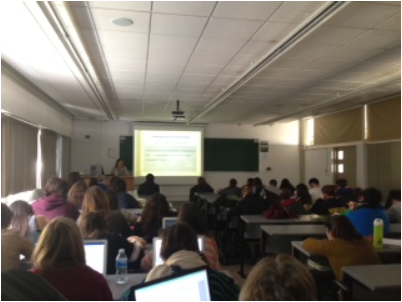
Concretely, this academic year the GRM seminar series included a first presentation on 26 February 2016 by Marie Curie Researcher Polina Palash (Aix-Marseille Université, Francia) titled Lazos transnacionales entre familias ecuatorianas en Barcelona y en Ecuador: dinámicas de protección social. The seminar dealt with issues affecting various municipalities placed in the Barcelona metropolitan area. Posterioly, the second seminar was held on 26 April 2016 and then Elisa Brey (Universidad Complutense de Madrid) offered a presentation titled Carreras migratorias y políticas de integración en la región de Madrid. Concretely, she focused on the situation of the main foreign immigrants groups. That same week, on 28 April 2016, lecturer Marco Aparicio Wilhelmi (Universitat de Girona) presented a third seminar titled El règim d’estrangeria: l’excepcionalitat com a norma. In that seminar several socio-juridical issues linked Spain and Europe were discussed. In contrast, the following month, on 17 May 2016, researcher Blanca Garcés-Mascareñas (Universitat Pompeu Fabra, Barcelona) presented a communication titled Condicions per a la ciutadania: residencia, família, comportament o vulnerabilitat. She reflected on various conceptual and politico-juridical issues with a multi-level perspective. Finally, the seminar seried concluded on 24 May 2016 with a communication presented by lecturer Fátima Velez-Castro (Universidade de Coimbra, Portugal) that was titled Forced migration: an analysis at the light of anthropic risks. She focused her attention on a relevant geographical study case, the Ilha do Fogo, in the African archipielago of Cape Verde. All sessions were open to the public and took place at the Philosophy and Arts Faculty (Facultat de Filosofia i Lletres) of Universitat Autònoma de Barcelona, UAB, located in Bellaterra campus.

In December 2015, the Handbook of Chinese Migration. Identity and Wellbeing has been published by Edward Elgar Publishing. This collective book has been edited by Robyn R. Iredale, Australian National University, and Fei Guo, Macquarie University, Sydney, Australia. Among their sections, there is a chapter co-authored by Dawid Wladyka & Ricard Morén-Alegret that is titled: “Chinese Immigrants in the Sagrada Familia Neighbourhood of Barcelona, Spain: Their Socio-economic Viability and Identity”. For more information, please click here, where details and critical acclaims as the following ones can be found:
‘Iredale and Guo have produced a twenty-first century handbook by placing Chinese migration in a world context. A one-stop shop for up-to-date information about Chinese internal and international migration, the book articulates an intellectually expansive agenda that highlights identity, wellbeing, inequality, and global networks. Contributions by leading social scientists from several continents are richly illustrated with data, maps, and qualitative materials. A good mix of broad trends and detailed case studies further positions the book to appeal to researchers, students, practitioners and beyond.’
– C. Cindy Fan, UCLA, USA
‘The range of topics covered in the chapters is impressive. Written by both established and younger scholars, all of whom are actively researching migration in and from China, this Handbook will become an authoritative guide to the variety of themes around internal and international population movements and China.’
– Ronald Skeldon, University of Sussex, UK and Maastricht University, the Netherlands
In November 2015, Josepha Milazzo has published an article titled “Du contexte villageois au village global. Approche réflexive de la contribution théorique d’une recherche empirique sur la migration internationale (Cadaqués, Espagne)” in the electronic scientific journal e-migrinter. Since 2008, this journal is published by the prestigious laboratory MIGRINTER (CNRS / Université de Poitiers, France) and it is focused on human migration studies. The aforementioned article is related to the PhD thesis project that Josepha Milazzo is carrying out within the framework of an international co-direction agreement and under the co-supervision of Virginie Baby-Colin (Aix-Marseille Université) and Ricard Morén-Alegret (UAB). See: https://e-migrinter.revues.org/545
During Autumn 2015, various fieldworks and research meetings that are relevant for this migration research programme and GRM have taken place in several European countries. On the one hand, a fieldwork was carried out in Greece, where Ricard Morén-Alegret interviewed the first ever international immigrant from outside Europe that has been elected as Mayor of a municipality in that country (he was born in Siria and elected in 2014). Moreover, Ricard Morén-Alegret had a meeting with Professor Charalambos Kasimis (collaborator of this research programme and linked to the Agricultural University of Athens) and, among other actions more, approached the current situation of German immigrants living in coastal Western Greece.
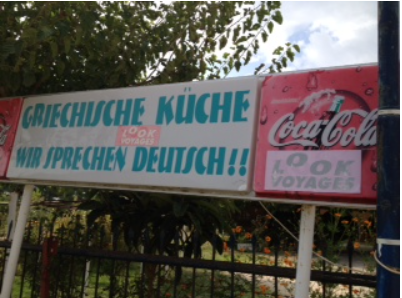
On the other hand, in England, UK, Ricard Morén-Alegret carried out fieldwork in South Warwickshire and meetings with researchers based at the University of Bath and the University of Warwick. Furthermore, in the latter place, he participated in a moving gathering titled “Universities Challenged: Where Next for Higher Education?”, where, among other relevant speakers, Nigel Thrift, geographer and Vice-Chancellor of Warwick University, outstanded.
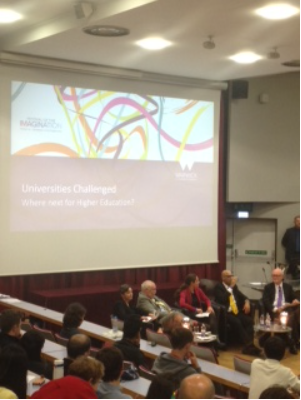
Finally, in the Republic of Ireland / Eire, Ricard Morén-Alegret had meetings with various members of the University of Dublin‘s Sociology Department, including director Daniel Faas. Moreover, he carried out fieldwork in Ireland’s West Coast, where there is a significant Brazilian immigrants’ community as well as relevant environmental, social and cultural movements.
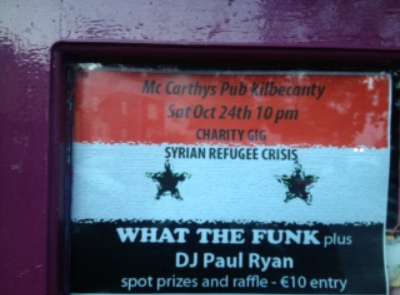
From August 2015, two collaborators of GRM and this set of migration research projects start new university jobs at the United States of America. On the one hand, Dr. Sandra Fatoric starts her Post-Doctoral contract at North Carolina State University. On the other hand, Dr. Dawid Wladyka starts his Lecturer contract at University of Texas – Rio Grande Valley.
On 28 May 2015, at 11h, Professor Ana Cecilia Dinerstein, University of Bath (England, UK) presented the third session of the 13th Annual Seminar Series on Migration UAB-GRM. This session was titled Migrating to another place, venturing beyond the wire. The venue was Aula 101 of the Philosophy and Arts Faculty (Facultat de Filosofia i Lletres), at Universitat Autònoma de Barcelona, UAB, in Bellaterra campus.
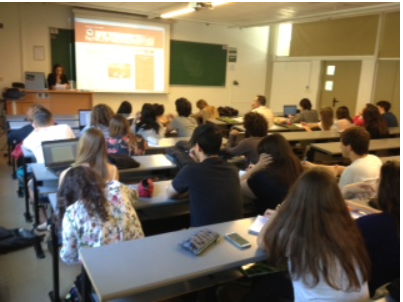
This seminar series is co-funded by the Dean Office of the UAB Philosophy and Arts Faculty and is coordinated by professor Ricard Morén-Alegret. These events are held in the framework of the Migration Research Programme of Grup de Recerca Consolidat Interfase (SGR2014-2016, AGAUR) as well as the UAB Doctoral Program in Geography.

On 5 May 2015, at 11:30h, junior researcher Beatriz Felipe, from Universitat Rovira i Virgili (URV, Tarragona, Spain), presented a seminar titled Los movimientos de población inducidos por el cambio climático: retos para el Derecho internacional within the framework of the 13th Annual Seminar Series on Migration UAB-GRM. This seminar series is co-funded by the Dean Office of the UAB Philosophy and Arts Faculty and is coordinated by professor Ricard Morén-Alegret. These events are held in the framework of the Migration Research Programme of Grup de Recerca Consolidat Interfase (SGR2014-2016, AGAUR) and the UAB Geography Doctoral Program.
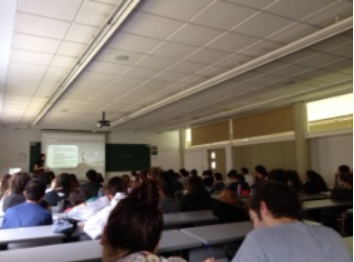
On 30 April 2015, at 11:30h., Dr. Dirk Gebhardt, Marie Curie Researcher at Pompeu Fabra University (UPF, Barcelona, Spain)presented a seminar titled Ciudades y ciudadanía para inmigrantes – Barcelona y Madrid comparadas within the framework of the 13th Annual Seminar Series on Migration UAB-GRM. This seminar series is co-funded by the Dean Office of the UAB Philosophy and Arts Faculty and is coordinated by professor Ricard Morén-Alegret. These events are held in the framework of the Migration Research Programme of Grup de Recerca Consolidat Interfase (SGR2014-2016, AGAUR) and the UAB Geography Doctoral Program.
In February 2015 the Dictionnaire des migrations internationales. Approche géohistorique has been published by Armand Colin in Paris, France. This is an encyclopedic book of 816 pages edited by Emeritus Professor Gildas Simon (MIGRINTER, Université de Poitiers/CNRS) including original work written by over 150 authors from a wide variety of countries (mainly, geographers and historians). A significant portion of the benefits raised by this book are planned to be devoted to fund a pre-doctoral fellowship on migration studies at MIGRINTER. Among others, two GRM collaborators – Virginie Baby-Collin, AMU, and Ricard Morén-Alegret, UAB – have voluntarily contributed to this international and human friendly publication.
On 25 November 2014, the Centre for Climate and Security, Washington DC, USA, has published a paper written by Sandra Fatorić and titled “Migration As A Climate Adaptation Strategy In Developed Nations” as BRIEFER nº24, please see: https://climateandsecurity.files.wordpress.com/2012/04/migration-as-a-climate-adaptation-strategy-in-developed-nations_briefer-24.pdf
From 3 to 7 November 2014 took place in Milan (Italy) the METROPOLIS International Congress, “Migration. Energy for the Planet, Feeding Cultures”. This world congress is organised annually since 1996, almost every year in a different place. On this occasion, more than 700 participants from the five continents and a variety of academic, governmental, social, economic and cultural intitutions gathered in Milan (see: http://www.metropolis2014.eu). Within the framework of this congress, on 5 November 2014, Workshop 205 titled “Immigration in Small Towns and Low-Density Rural Areas” took place. This workshop was co-organised by Fátima Velez de Castro, Universidade de Coimbra, and Ricard Morén-Alegret, UAB. Apart from the co-organisers, this session also included presentations from Lucinda Fonseca, Universidade de Lisboa, Michele Nori, European University Institute, and Paulo Espínola, Universidade de Coimbra. This workshop continued a previous session held in September 2011 within the framework of the METROPOLIS International Conference that took place in the Azores Islands, Portugal, and that was co-organised by Ricard Morén-Alegret and Lucinda Fonseca.
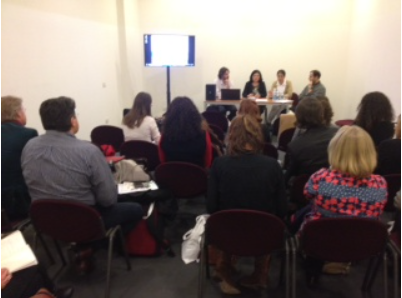
On 4 October 2014, Josepha Milazzo presented a comunication titled “Habiter un ‘village global’: Espaces du lieu et expériences de la localité de migrants internationaux villageois (Cadaques, Espagne)” during the Festival International de Géographie (FIG) held in Saint-Dié-des-Vosgues (France). See more details at: http://www.fig.saint-die-des-vosges.fr/
A new GRM working paper has been published in this website. Concretely, in this new issue Dr. Maja Zovko (University of Zadar, Croatia) offers an overview of the current fiction literature on international immigration in Spain. For more details, please visit the Working Papers section (webs.uab.cat/migracions) and/or click below: WP-GRM-2014-3: ZOVKO, M. (2014) Algunas peculiaridades de la narrativa actual sobre la inmigración extranjera en España. GRM Working Papers, issue nº 3.
On 25 September 2014, in the framework of a 3 months research visit to MIGRINTER laboratory, Université de Poitiers (France), co-funded by Poitou-Charentes Region, Ricard Morén-Alegret presented a seminar titled “British immigration and sustainable small towns and rural areas. Exploring the case of Poitou-Charentes” at Poitiers University’s MSHS. See news on the seminar: http://migrinter.hypotheses.org/1877. And on the research visit in western France: http://migrinter.hypotheses.org/1821 . This research visit to MIGRINTER and the fieldwork carried out in Poitou-Charentes from July to September 2014 it is based on the previous R+D project titled “Immigrants’ integration and the role of a diversity of organisations in achieving sustainable small towns and rural areas” (ref. CSO2009-13909) and funded by the Spanish Government Ministry for Science and Innovation (2010-2013).

Bilingual sign in Charente Maritime, August 2014. Photo by Ricard Morén
From 23 June to 25 June 2014 the Superdiversity: theory, method and practice in an era of change Conference was organised by the Institute for Research into Superdiversity, IRiS, at the University of Birmingham, UK. In this conference several presentations related to the Concordia Discors project took place. This project has been coordinated by FIERI, Italy, and participated by reserarch groups from the UK (COMPAS), Hungary (TARKI), Germany, Belgium (EPC) and Spain (GRM). On 23 June 2014, Ricard Morén-Alegret & Dawid Wladyka co-presented there a paper co-prepared together with Albert Mas and titled “The neighbourhood forum as a community engagement tool in superdiverse areas: experiences from Barcelona”. This presentation was strongly related to contributions presented the day after also in that Superdiversity conference: one by Ole Jensen (University of Oxford, UK) titled “Whose neighbourhood? A comparative analysis of the neighbourhood forum as a platform for community engagement” and another one by Pietro Cingolani & Irene Ponzo (FIERI, Italy) titled “Making Group Borders and Relations in Superdiverse European Neighbourhoods”.

INTERNATIONAL WORKSHOP ON IMMIGRATION, DIVERSITY AND INTEGRATION
On 2 June 2014 an international workshop on Immigration, Diversity and Integration took place at the UAB Barcelona city campus (Sant Pau modernist area). This event was organised by the Geography Department of Harokopeio University (Athens, Greece), and it was held in the context of a 2014 workshop series organised in Greece, Portugal, Spain, Italy, Cyprus and Malta. These workshops are funded by the European Commission and the Greek government. In the Barcelona workshop, various organizations and institutions from Greece and Spain participated: among others, Agricultural University of Athens, Universitat Rovira i Virgili (Tarragona), Harokopeio University (Athens), Universitat Autònoma de Barcelona, Barcelona City Council, Patra Municipal Council (Western Greece), Hellenic Foundation for European and Foreign Policy, ELIAMEP, Casa Asia (Spain), Barcelona Public Libraries Network, Living-together Network of Roses town (Girona province), Federation of Organisations of Poble Sec Neighbourhood (Barcelona city). There was local organisational support from the coordinator of GRM at the UAB Geography Department, Ricard Morén-Alegret.

European Labour Mobility report published in spring 2014
The current economic situation forces the EU to look into ways to develop smart growth within its boundaries, involving all of its members states for a healthier and sustainable socio-economic future. But how can this be achieved? The Harnessing European Labour Mobility (HELM) report, presented during spring 2014 in Brussels and other places, uses 5 forecasting scenarios to show what effect measures taken today would have in 2025. HELM suggests 16 policy recommendations regarding training of mobile workers, improving job matching services such as EURES, reducing obstacles to mobility, and showing the added value of mobility. Ricard Morén-Alegret was part of the advisory board and contributed to the study participating in various workshops held in Brussels as well as with the following entry in the final report (p.75):
Perception of individual-level benefits for mobile workers and migrants within the EU: the need for (a) common sense (of place)
Migration within Europe is nothing new and, beyond the sound of what might be heard as trumpets of the apocalypse, there is a long history of migration across borders that have instead been music to European ears, helping to overcome economic gaps and political conflicts (Pascual 1970). Of course migration and mobility are not always harmonious – sometimes there is a lack of rhythm (the supply of workers does not cover existing demand) or the rhythm instead seems too fast (multiple immigration waves in a short period can be perceived as overwhelming). Today, if the EU-28 is considered a musical ensemble, the common European orchestra needs to play smarter and in tune. This lack of harmony can be an opportunity for common improvement. Regarding migration or mobility within the EU, it would be wiser to bear in mind a wide meaning of “benefit”, such as “a favourable or helpful factor or circumstance”, than to consider just a narrow meaning, such as “payment” (Thompson 1995). A score is often helpful when playing music and, similarly, scientific research can be helpful in designing a new European policymaking framework on mobility and migration. There is a need for more evidence-based research about the current migration situation. Regarding both individuals on the move and potential future migrants, such European policies should take into account that there is a link between emotion and movement between places. A sense of place may be felt on many scales, and there is no single sense of place, but rather many embedded and interconnected feelings that may be seen in particular settings (Mendoza and Morén-Alegret 2013). Accordingly, the perception of individual-level benefits for mobile workers and migrants within the EU may take place on several scales. There is not only the need for multilevel governance on migration (Zincone, Penninx and Borkert 2011), but also a possible multiscale sense of place among EU citizens has to be taken into account. If the goal is to be a lasting union, Europe should then be considered as a welcoming place where individuals can find a place to truly live, not just a general or abstract political space. Europe, then, as a place of places. “Places exist not only as physical entities but also as a result of people’s different experiences, and places are full of meaning and encompass an existential dimension, an emotional link with the human being. People’s lives occur in and interact with specific places with well-defined attributes … In an increasingly unequal global world, places may acquire a greater role in providing security and assurance for individual identities” (Mendoza and Morén-Alegret 2013). However, regarding mobility and migration, does Europe have well-defined attributes and does it provide security and assurance? As in a music performance, smart European policy on migration and integration is not just about technical expertise but about the whole sensorial experience.”
Source: Morén-Alegret, R. (2014) “Perception of individual-level benefits for mobile workers and migrants within the EU: the need for (a) common sense (of place)”, In Thode, E. (coord.) Harnessing European Labour Mobility, Gütersloh (Germany): Bertelsmann Stiftung.
More information: http://www.bertelsmann-stiftung.de
On 8 May 2014, Dr. Xavier Torrens (Universitat de Barcelona & Fundació Baruch Spinoza) presented the session titled “Diàspora, diversitat i creativitat. La migració en el novè art i la memòria històrica de la cultura” at the UAB Faculty of Philosophy and Arts. This activity has been held in the framework of the seminar series on “Migration, Arts and Culture” of the 12th GRM Annual Seminar Series on Migration.

On 29 Abril 2014, at 11:30h, Dr. Paola Minoia (University of Helsinki) presented a session titled “Environmental changes, mobilities and people’s memories. Ethnographic work in Kenya (Taita Hills) and Morocco (Tafilalet)”. This session took place within the Special GRM Seminar series on Climate change and Migration.

On 10 April 2014, at 11:30h. Gaëlle Patin Laloy, Casa Asia (Barcelona) presented at the UAB Philosophy and Arts Faculty a session titled: “Migración y diversidad: El encuentro intercultural a través de las artes”. This activity has been held in the framework of the seminar series on “Migration, Arts and Culture” of the 12th GRM Annual Seminar Series on Migration.

On 8 April 2014, the Viva of the PhD Thesis written by Albert Mas (GRM, UAB) and titled Foreign immigration around natural areas. An international comparison between localities of Alt Empordà (Spain) and Alentejo Litoral (Portugal) took successfully place at UAB. This thesis was directed by Dr. Ricard Morén-Alegret (GRM, UAB).
On 22 March 2014, a paper co-written by Dawid Wladyka and Ricard Morén-Alegret (GRM-UAB) and titled “Towards a Mediterranean ‘Superdiverse’ Small Town? Immigration and Sustainability in Empuriabrava Neighborhood, Catalonia, Spain” was presented at the 2014 Urban Affairs Association Congress held in San Antonio (Texas, USA). SA1.01 session. Race, Ethnicity, and Urban Development (see: http://urbanaffairsassociation.org/conference/conference2014/)
On 10 March 2014, Sandra Fatoric (GRM-UAB) presented a paper titled “Climate change vulnerability in coastal proteceted áreas of Catalonia (Spain): The cases of Ebro Delta and Aiguamolls de l’Empordà” in the Conference on European Climate Change Adaptation. Research and Practice, held in Lisbon (Portugal). This presentation took place in the framework of a session on “Coastal areas, marine biodiversity and fisheries. Parallel session A” (vegeu: http://www.adaptationfrontiers.eu)
On 6 March 2014, Judit Carrera, Centre de Cultura Contemporània de Barcelona (CCCB), presented at the UAB Philosophy and Arts Faculty, the session titled “La dimensió cultural de la globalització. Migracions i diversitat cultural al CCCB”. This activity has been held in the framework of the seminar series on “Migration, Arts and Culture” of the 12th GRM Annual Seminar Series on Migration.

According to the III ranking QS World University Rankings by Subject, published on 26/02/2014, Universitat Autònoma de Barcelona (UAB) is among the best 100 universities in the world in the following disciplines: Agriculture and Forestry Sciences, Communication, Economy, Geography and Physics. 3,002 universities were assessed, among them 689 were classified. The ranking is available at: www.topuniversities.com
During the afternoon of the 20th of February 2014, the Viva of the PhD Thesis written by Sandra Fatoric (GRM, UAB) and entitled Vulnerability and Adaptation to Climate Change in the Mediterranean region. Climate out of balance in Aiguamolls de l’Empordà? took successfully place at UAB. This thesis was directed by Dr. Ricard Morén-Alegret (GRM, UAB).
On 20 February 2014, during the morning, Professor Lucka Kajfez-Bogataj (University of Ljubljana & IPCC) presented at UAB the paper “Our response to Climate Change: How to avoid the Unmanageable and to Manage the Unavoidable” in the framework of a small GRM special seminar series on climate change and migration.
On 10 February 2014 Centre d’Estudis Demogràfics (CED), directed by Dr. Anna Cabré, celebrated its 30th birthday with an emotive event organised at the premises of the Parliament of Catalonia. Participants in the event were many and diverse, among them the coordinators of GRM, Dr. Àngels Pascual and Dr. Ricard Morén, as well as other group and UAB Geography Department members . During 1994-1996, CED hosted in their premises various members of the group that later gave birth to GRM and along the years we have collaborated as much as possible. Best wishes for a very happy year of celebrations!

On 27 January 2014 Ricard Morén-Alegret participated in a workshop on migration within the European Union ( EU) that took place in Brussels (Belgium).
On 17 December 2013 the conference “Xarxes fragmentades: migració internacional des de la ciutat de Mèxic” took place at Institut d’Estudis Catalans by Cristóbal Mendoza (GRM and Metropolitan Autonomous University-Iztapalapa, Mexico City). The conference was organised by Societat Catalana de Geografia (IEC).

On 17 December 2013, the third session of the 12th GRM Annual Seminar Series on Migration took place at UAB. This seminar was presented by Maja Zovko, University of Zadar (Croatia) and it was titled “El exotismo, el folklore y las tradiciones en la literatura actual sobre la inmigración”.

On 9 and 10 December 2013 the final meeting of the R+D project “Immigrants’ integration and the role of a diversity of organisations in achieving sustainable small towns and rural areas” took place at the UAB Geography Department with the participation of some research team members. The project has been financed from 2010 to 2013 by the Spanish Government’s Ministry of Science and Innovation (reference CSO2009-13909) and directed by Dr Ricard Morén-Alegret. Please, find more information about this project on the following link: Project_Immigrants-Integration.htm

On 28 November 2013 took place the Viva of the PhD Thesis written by Dawid Wladyka (GRM, UAB) and entitled: Inter-Ethnic Experiences of Polish Immigrants in South-Western European Neighborhoods. Comparing Sagrada Familia, Barcelona, and Empuriabrava, Castelló d’Empúries. It was co-directed by Ricard Morén-Alegret and Angels Pascual de Sans (GRM, UAB) and it was rated with an excellent cum laude by the members of the tribunal.
On 26 November 2013, during the afternoon, Ricard Morén-Alegret presented a paper titled “Foreign immigration, intercultural dialogue and sustainability in small towns: The case of Roses, Northeastern Catalonia, Spain” in the Migration, Media and Intercultural Dialogue Conference. This conference was held in Barcelona and organised by the United Nations University Institute on Globalization, Culture and Mobility (UNU-GCM).
During the morning of the 26th of November 2013 the second session of the 12th GRM Annual Seminar Series on Migration took place at UAB and was presented by Imma Boj (MHIC, St. Adrià de Besòs, Barcelona) with the following title: “Experiències i activitats del Museu d’Història de la Immigració a Catalunya, MHIC”.

On 26 September 2013 at 10:30 am took place the opening session of the 12th GRM Annual Seminar Series on Migration – Special series on “Migration, Arts and Culture“. The session was presented by Professor Marco Martiniello (Université de Liège, Belgium) and it was titled “Popular Arts, Ethnicity and Migration”. A variety of scholars and public participated there, including professors, researchers and students from the departments of geography, political science, anthropology, sociology, media and journalism studies and translation studies, among others.

Since early September 2013 onwards, Josepha Milazzo holds a teaching post at Université de Corse / Università di Corsica (France).
In August 2013, Ricard Morén-Alegret started a three-month research visit to the United Nations University Institute on Globalization, Culture and Mobility (UNU-GCM). Most of the geographic research that he is doing there is associated to the R+D project titled “The integration of immigrants and the role of a diversity of organisations in achieving sustainable small towns and rural areas” (reference CSO2009-13909) and is focused on an examination of different aspects of the cultural side of sustainability in small towns with a significant presence of foreign immigration. On this occasion, he is specifically focusing on the small Mediterranean town of Roses, which has a documented history of migration dating all the way back to Ancient Greece.
During April, May and June 2013 the 11th GRM Anual Seminar Series on Migration took place at UAB. This academic year the seminar series has been specially devoted to “Migration, sustainability, mobility and environmental changes”. On 24 April 2013 an introductory session was presented by Anna Vilaseca and Eduard Trepat, Fundació del Món Rural, FMR (Lleida) and titled “Mobilitat i sostenibilitat en el món rural català. De la transhumància a les migracions”. Furthermore, in the international programme there were the following participants: Sandra Fatoric, GRM-UAB (17 May) with the paper titled “Migration as climate change adaptation? The case of Aiguamolls de l’Empordà (Catalonia, Spain) in an international context”; Dr. Helen Adams, University of Exeter, England (22 May) with the paper titled “Mobility and immobility under environmental change: evidence from Peru and Bangladesh” ; Ethemcan Turhan, ICTA (29 May) with the paper titled “Climate Change Adaptation, Migration and Human Security: A critical vision on circular/seasonal migration from Turkey”; Dr. Navinder Singh, Swedish University of Agricultural Sciences, Umea, Suecia (5 June) with the paper titled “Contrasting human and animal migrations in Central Asia and Europe” ; and, finally, Dr. Kees van der Geest, Institute for Environment and Human Security, United Nations University (14 June) with the paper titled “Rainfall variability, food insecurity and migration. Empirical evidence from the Where the Rain falls project”. This seminar series was co-funded by the SGR 2009-2013 programme of AGAUR, it is linked to the R+D project CSO2009-13909 (funded by MICINN, 2010-2013) and it was directed by Dr. Ricard Morén-Alegret (see more information and some pictures in the section “Seminars” of this website).

Picture: Seminar presented by Dr. Helen Adams
On 15 May 2013, on the occasion of the International Day of Families, Dan Rodríguez was interviewed in Radio Nacional de España (Radio 5) and talked about immigration and mixed couples/families. The interview is available in the following link: http://www.rtve.es/alacarta/audios/entrevista-de-actualidad/entrevista-actualidad-r5-dia-internacional-familia-15-05-13/1820224/
On the 10th of May 2013 an article titled “Navegaciones e integraciones” and written by Ricard Morén-Alegret was published in La Vanguardia daily newspaper. The article is available both in Spanish and Catalan languages (with a note by the author) in the following links: http://scg.iec.cat/Scg9/Scg92/S90241.htm , https://webs.uab.cat/migracions/wp-content/uploads/sites/534/2024/09/lv_rmoren.pdf
On Saturday 2 February 2013 an interview with Àngels Pascual de Sans was broadcasted on Badalona TV within the framework of the series titled “Les dones sàvies” (The wise women). It is possible to watch that program in the following website address: http://tvbadalona.xiptv.cat/les-dones-savies/capitol/angels-pascual-de-sans#.UQ1e5mZADOA.gmail
Along 2012 the bulk of the fieldwork of the R+D project titled “Immigrants’ integration and the role of a diversity of organizations in achieving sustainable small towns and rural areas” (2010-2013) was completed. This project is funded by the Spanish Ministerio de Ciencia e Innovación and it is coordinated by Ricard Morén. After focusing fieldwork on Alt Empordà county (Catalonia, Spain), fieldworks were carried out in Warwickshire (England), North-Western Peloponese (Greece), Alentejo Litoral (Portugal) and the South-East of South Australia (Australia). During 2013 more results from this project will be displayed.
On 25 October 2012 Josepha Milazzo presented a paper titled “Inmigración internacional y desarrollo de territorios (semi) rurales mediterráneos. Comparación de los bolivianos en Cataluña (Alt Empordà) y de los marroquíes en Córcega (Plaine Orientale)” in the international congress El valor de lo rural. This academic gathering was held in Zamora (Mexico).
On October 23 2012, Dan Rodríguez-García participated as an invited expert speaker on intermarriage for the debate programme “Intercultural couples: problems, prejudices and everyday life”, El Mirall, broadcast by Catalunya Radio. Online access to the program: http://www.catradio.cat/audio/673837/Parelles-mixtes
On 17 October 2012, the final conference of the international project titled “Concordia Discors” took place in the Residence Palace, Brussels. This innovative project is funded by the European Commission and coordinated by FIERI (Italy). During 2011 and 2012, integration processes and conflicts have been studied in two neighbourhoods of five European cities: London, Budapest, Barcelona, Turin and Nuremberg. The study on Barcelona was coordinated by Ricard Morén-Alegret and it included the participation of Dawid Wladyka and Albert Mas. These three GRM members participated in the final conference in Brussels together with four local stakeholders of the two neighbourhoods that were studied in Barcelona: Poble Sec and Sagrada Família. More information: http://www.concordiadiscors.eu/
On October 15 2012, Dan Rodríguez-García was interviewed as an expert speaker on the topic “The brain drain as a negative impact of Catalan emigration” for the news programme L’Observatori, broadcast by La Xarxa (Municipal Radios’ Network), Barcelona, October 15. Online access to the program: http://blocs.xarxaradio.cat/observatori/2012/10/15/dan-rodriguez-expert-en-migracions-limpacte-negatiu-de-la-fuga-de-cervells-catalans-es-la-perdua-de-talent/
The Societat per a la difusió de les realitats culturals africanes (SDRCA) has awarded Dan Rodríguez-García the Barcelona, drassanes per Àfrica – Principat de Catalunya 2012 Award, for his contribution to the advancement of knowledge on Africa.
PREVIOUS NEWS:
On August 3 2012, Albert Mas presented in the XIII World Congress of Rural Sociology held in Lisbon the paper “International immigration around natural protected areas. Exploring some localities in Alt Empordà (Spain) and Alentejo Litoral (Portugal)”, co-written with Ricard Morén-Alegret.
On July 27 2012, Albert Mas presented in the IX Coloquio Ibérico de Estudios Rurales held in Lisbon the paper “Inmigración internacional entorno a áreas naturales protegidas. Explorando algunas localidades del Alt Empordà (España) y el Alentejo Litoral (Portugal)”, co-written with Ricard Morén-Alegret.
On 22 June 2012, the international newspaper El País published an interview with Montserrat Feixas Vihé where she explained her experience as representative in India of the United Nations High Commissioner for Refugees (UNHCR), among other issues. See:http://sociedad.elpais.com/sociedad/2012/06/22/¡actualidad/1340396778_700067.html
The article “Vulnerability to the effects of climate change and adaptation: The case of the Spanish Ebro Delta“, co-authored by Sandra Fatoric, has been published in 2012 and it has become one of most downloaded articles of the journal Ocean & Coastal Management (Impact Factor: 1.524. 5-Year Impact Factor: 1.661). See: http://www.journals.elsevier.com/ocean-and-coastal-management/most-read-articles/
A fellowship of the Dissertation Proposal Development Fellowship Program 2012 “New Approaches to Transnationalism and Migratory Circulation” has been awarded to Josepha Milazzo. This program is organised by the Social Science Research Council and it is funded by the Andrew W. Mellon Foundation.
10th ANNUAL SEMINAR SERIES on MIGRATION. From January to May 2012, a decade of scientific debates on human migration was celebrated at GRM, Departament of Geography, UAB. The programme is available in the Seminars section of this website. The opening session was chaired by the UAB Vice-Rector for Research and the opening conference was offered by Professor Douglas S. Massey (Office of Population Research, Princeton University, USA) . On the other hand, the closing seminar included a conference by Professor Rosa Aparicio (Fundación Ortega y Gasset, Madrid).
Several GRM members participated in the 2012 American Association of Geographers Congress that took place in New York city. On February 25 Ricard Morén-Alegret presented a paper co-authored by himself, Dawid Wladyka and Albert Mas on Foreign immigrants’ integration in Barcelona, Roses and Castelló d’Empúries. Additionally, on Februery 26 Dawid Wladyka presented a paper co-authored by himself and Ricard Morén-Alegret on Polish immigrants in Catalonia.
Ricard Morén Alegret and Dawid Wladyka co-presented a paper co-authored by them and Albert Mas on Latin American immigration in Barcelona within the seminar Latin-American Migration, Patterns of Settlement and Transnational Dynamics. Perspectives from Europe, the USA and South America. This seminar took place at New York University on 29 February 2012 and it was organised by Virginie Baby-Collin (UMI Transitions, CNRS/NYU).
Dan Rodríguez-García has won a prize-fellowship at the call of the UAB Aposta 2011, within the Social and Cultural Progress research area, for the project: “E Pluribus Unum: Immigration, Hybridity and Social Cohesion”. The awards ceremony took place on December 12 2011. in the auditorium of the Casa de Convalescència building.
On September 29 2011, Dan Rodríguez-García participated as an invited expert speaker on migration in the television programme Banda Ampla: “To emigrate for work”, broadcast by TV3 (Catalan public TV channel).
On 22 and 23 September 2011, Ricard Morén-Alegret participated in the “Ethnography, Diversity and Urban Space” conference that took place at Oxford University (UK). He presented a paper there titled “Foreign immigration and the 2011 local elections in Barcelona: Channeling diversity?”. This paper was co-authored by Ricard Morén-Alegret, Dawid Wladyka and Albert Mas, and it is related to the on-going European project titled “Concordia Discors” coordinated by FIERI.
From the 12th to the 16th of September 2011 the 16th International Metropolis Conference took place in Ponta Delgada (Azores Islands, Portugal). The following GRM members participated in the workshop “Immigrants’ integration and sustainability in small towns” (wokshop 311): Albert Mas, Dawid Wladyka, Sandra Fatoric and Ricard Morén-Alegret (co-organizer and chair of the workshop). During the workshop, some of the work in progress carried out within the framework of the research project “Immigrants’ integration and the role of a diversity of organisations in achieving sustainable small towns and rural areas” (2010-2012) was presented and discussed. This project is directed by Dr. Ricard Morén-Alegret and funded by the Spanish Ministry of Science and Innovation (R+D project CSO2009-13909). Please, click here to see the website of the congress and to download the program: www.metropolis2011.org/
On 21rst June 2011 Ricard Morén presented a paper at the conference organized by EURAC “Social Mobility and Migration. Multidisciplinary Perspectives” held in Bolzano/Bozen (Italy).
From 3 February to 2 June 2011 the IX Annual Seminars’ Series on Migration organised by GRM took place at UAB with the presence of: Rinus Penninx (IMES, Universitaat van Amsterdam -UvA-, y Director de IMISCOE); Danièle Joly (Director of Centre for Research in Ethnic Relations-CRER, University of Warwick); Anna Cabré, Directora del Centre d’Estudis Demogràfics (CED); Santiago Roquer, (Universitat Rovira i Virgili); Cristóbal Mendoza (Universidad Autónoma Metropolitana, México DF); and Míriam Acebillo and Eva Østergaard (Departament de Ciència Política i Dret Públic, UAB). Please, click here to see the whole programme.
A new project with GRM participation titled Concordia Discors: Understanding Conflict and Integration Outcomes of Inter-Group Relations and Integration Policies in selected Neighbourhoods of Five European Cities has started (2011-2012). It is a European trans-national project funded by the European Commission and led by the Forum of International and European Research on Immigration (FIERI) in Italy. Ricard Morén-Alegret is coordinating research in Spain as part of this project.
From 4th to 8th October 2010 Dan Rodríguez García participated in the 15th International Metropolis Conference, celebrated in the Hague, with the paper “Immigrant Settlement and Integration in Spain: An Analysis of the Case of Catalonia Using the New National Survey of Immigration”.
The Journal of International Migration and Integration has published the Dan Rodríguez García’s work “Beyond Assimilation and Multiculturalism: A Critical Review of the Debate on Managing Diversity” (2010, 11/3: 251-271).
On September 13 and 14, Ricard Morén participated in the 7th IMISCOE annual Conference: www.imiscoe2010.org
July 8th, 9th and 10th held at the Facultat de Geografia i Història de la Universitat de Barcelona the XII Congreso de la Población Española organised by the Grupo de Población de la Asociación de Geógrafos Españoles (AGE). Àngels Pascual and Miguel Solana are are responsible for coordinating the monographic session “Téncicas cualitativas en los estudios de población”. Click to access the congress website.
In a next number of Social Networks it will be published the Verónica de Miguel and Mark Tranmer article “Personal support networks of immigrants to Spain: A multilevel analysis”. The work, that analyses the formation of personal support networks of immigrants in Spain, it’s available at http://tinyurl.com/35qq3qf
Fundació CIDOB has published the Dan Rodríguez‘s document “Retos y tendencias en la gestión de la inmigración y la diversidad en clave transatlántica” within the collection “Documentos CIDOB Migraciones”. Click on the title to download the complete text.
Willow Sussex Mata (University of California, USA) has been at UAB Geography Department as a Fulbright visiting researcher with the GRM, between October 2009 and March 2010.
The Ministerio de Ciencia e Innovación del Gobierno de España has approved the research project “Immigrants’ integration and the role of a diversity of organizations in achieving sustainable small towns and rural areas” (2009-2013), directed by Ricard Morén.
Universitat Autònoma de Barcelona has conceded Dan Rodríguez with one of the Research Excellency Awards (PREI_2008) dedicated to the Humanities and Social Sciences area of knowledge. This program awards the best investigation works published by members of this university. The 2008 award referred to the investigations published in 2006 and 2007.
On 3rd of July 2009 it was published by AGAUR agency (Catalan Government) the resolution of the SGR 2009-2013. GRM has been distinguished as “Consolidated and Funded Research Group” for the aforementioned period with Ricard Morén-Alegret as a Coordinator.